
Here you can learn how to write the best CV. There are plenty of examples of a good CV out here to help you write your perfect one. It will help you get the job you want, put your best foot forward while interviewing, and get more opportunities in your field of study and profession.
- Good CV vs Bad CV:
- CV Structure:
- What makes good CV effective?
- What makes bad CV ineffective?
- Good CV Section with Writing Tips:
- CV Format:
- CV Writing Tips:
- Examples of a Good CV:
- Student CV Example
- Customer Success Manager CV Example
- Scrum Master CV Example
- Retail CV Example
- Technical Designer CV Example
- Translator CV Example
- Data Scientist CV Example
- Project Manager CV Example
- Sales Executive CV Example
- QA CV Example
- Training Instructor CV Example
- Software Testing CV Example
- Intern CV Example
- Customer ManagerCV Example
- Graduate CV Example
- Chemist CV Example
- Sound Manager CV Example
- Administrative Manager CV Example
- Physical Therapist CV Example
- Journalist CV Example
- Consultant CV Example
- Application Specialist CV Example
- UX Designer CV Example
- Relationship Manager CV Example
- Web Developer CV Example
- Civil Engineer CV Example
- Nurse CV Example
- Personal Assistant CV Example
- Insurance Advisor CV Example
- Sales Specialist CV Example
- Marketing CV Example
- Interpreter CV Example
- Risk Manager CV Example
- Data Officer CV Example
- Business Consultant CV Example
- Program Manager CV Example
- Accounts Executive CV Example
- Business Development Consultant CV Example
- Customer Service CV Example
- Registered Nurse CV Example
- Data Analyst CV Example
- Engineer Controls CV Example
- Portfolio Manager CV Example
- Marketer CV Example
- Financial Controller CV Example
- Finance Director CV Example
- Instructional Designer CV Example
- logistics Manager CV Example
- Account Manager CV Example
- Computer Scientist CV Example
- Frequently Asked Questions
Good CV vs Bad CV:
A good CV is more than just good grammar, it is also about your life story. You have to tell the employer why you are a perfect match for the job and how you can help the company succeed. It should be as short as possible, but still informative enough to give employers a run-down of your career, education, and your personality.
A bad CV is either too long or too short to understand who you are. Bad spelling and bad grammar will cost you points during the interview process. The employer will often ask if you can write a better one.
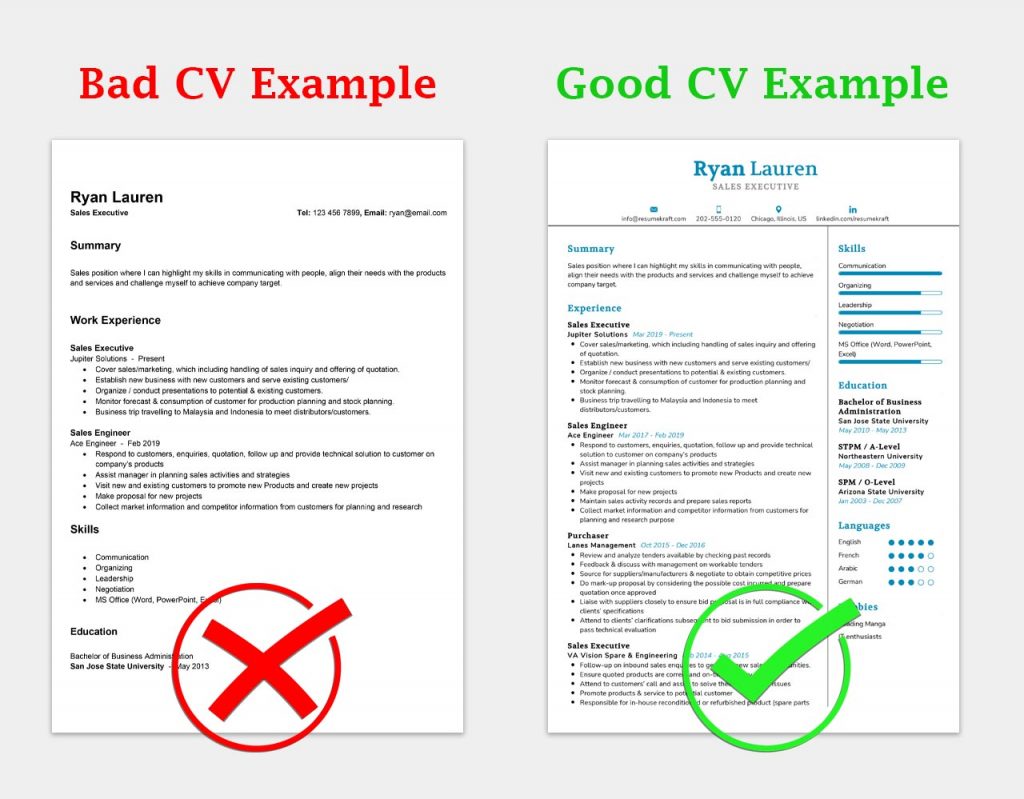
CV Structure:
A CV should always start with header information. This will be your name, address, and phone number. Then you should include a description of yourself called a summary or objective. This gives the employer an idea of what you are doing and where you want to go in life. Some people call it a career synopsis but don’t get too detailed when writing it. Just give a short run-down of what you have done so far in your job search, education, and life experiences like hobbies and volunteer work.
1. Personal Profile:
This is the section that tells why you are a good candidate for the job. This is perhaps one of the most important sections of your CV Template because it gives the employer an idea of why they should hire you.
2. Skills:
This is where you put all of your skills and qualifications into the field you are applying for. If you are applying for a job in finance, it would be best to put your financial skills in this section. You should also include specific skills that show that you are capable of doing the job. Don’t just put “accounting” on your CV because that could cover everything. Make sure it shows the employer what you can do specifically and then cut out anything else.
3. Experience:
This section is for work experience, volunteer work, and any other experience you had that shows off your abilities. The order of the things you list in this section may vary depending on what looks better for the job you are applying to.
4. Education:
This is one of the most important parts of your CV and it should be listed in reverse chronological order. Include the university or college you graduated from, the type and major of your degree or diploma, and any awards you received while there.
5. Other Information:
This section is optional but can be of great help if you have any certifications or computer skills to add to your CV. If you have not obtained any of these, don’t worry about it.
6. References:
Make sure you have included the reference section with your CV when applying for a job. If you have never used it before, don’t worry about it and leave it out to start with. It will hurt you more than help if you put this on your first CV.
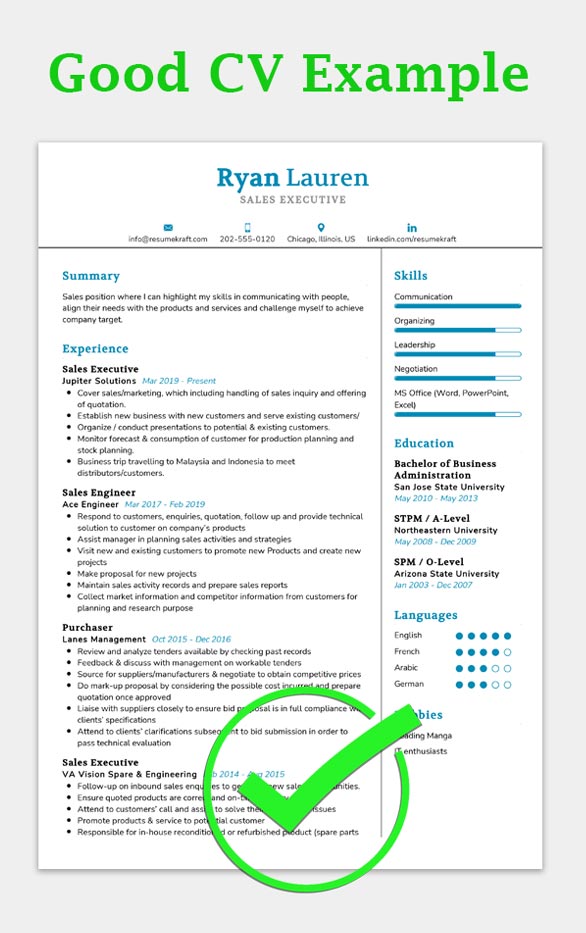
What makes good CV effective?
- It is short and to the point
- It uses correct English grammar, spelling and punctuation
- It explains what you have done in life so far in a way that the employer can understand why you are a good fit for their job role.
- You must show that you have experience doing the type of role they need, but also show that you can do it well. This shows confidence and talent.
- Shows your skills and qualifications related to the job role and industry or company they will be working in.
- It is easy to read and understand, as it is short.
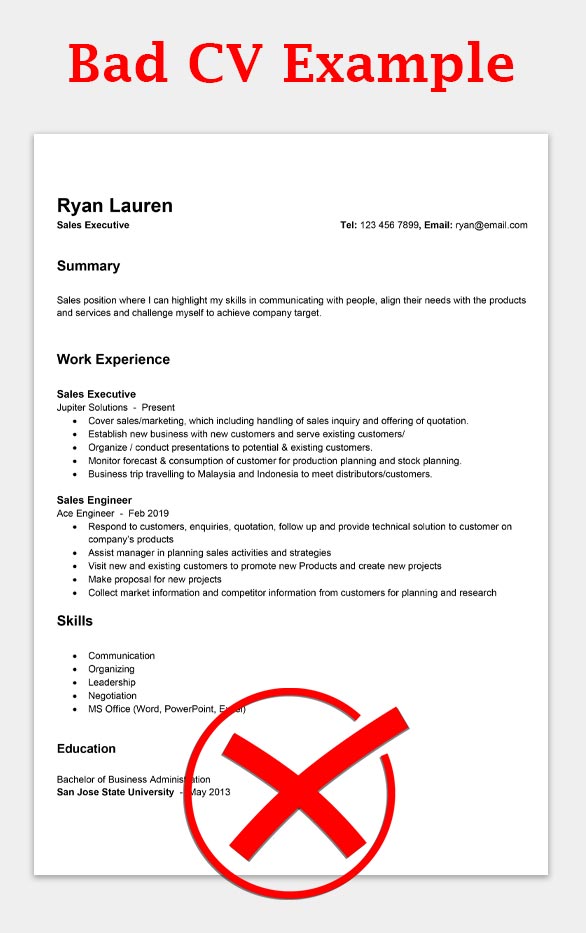
What makes bad CV ineffective?
- It is long, too much information
- It uses incorrect English grammar, spelling and punctuation
- It explains what you have done in life so far in a way that the employer can ignore why you are a good fit for their job role.
- You must show that you have experience doing the type of role they need, but also show that you can do it well. This shows doubt and lazyness.
- Shows little skills and qualifications related to the job role and industry or company they will be working in.
Good CV Section with Writing Tips:
1. CV Personal details:
A personal details section is where you tell about your skills, education, and other information about yourself. The things you put here will depend on what they are asking for. If they ask for experience, then list your experiences first and then your skills and qualifications. If they ask for age, then put that first then the work experience or qualifications you have acquired in the past. Some things in the personal details section should be included if there is room:
Tips:
- Check your spelling and grammar.
- Stick to the basic 4-6 spaces on the lines for each section of your CV.
- Try not to use a lot of big words, because this might confuse employers.
- Keep it short and focused on the areas that are important for the job role you have chosen.
2. Personal Profile Statement:
This should be a short paragraph that you write about yourself. It should give an introduction to your CV and tell the employer something about you like your career or education goals, why you want to work in their company and what unique skills you have that will help them. You can use bullet points for this section but don’t go over more than 3 or 4 points because it could look like a list and not something written by a person.
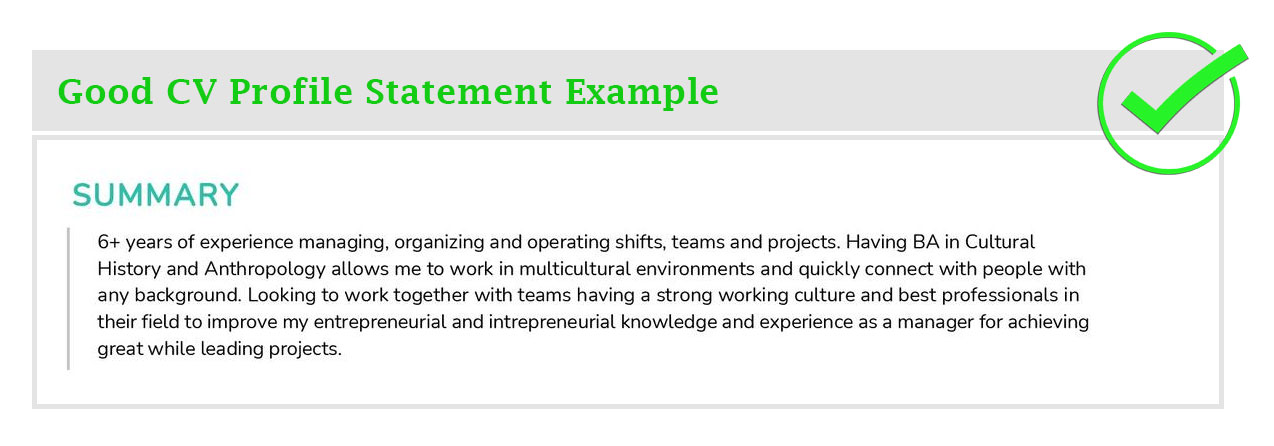

Tips:
- Use correct English grammar, spelling and punctuation.
- Don’t be sarcastic or rude about your previous job or working experience.
- Keep it short and focused on the areas that are important for the job role you have chosen.
- Tell them why you would be perfect for their company, but don’t lie. Tell them what your goals are, so they can see that you will be able to become successful in their company.
3. CV Education:
This is where you list your education, the type and the degree or diploma you received. You should also tell them any awards received while attending university or school. Use bullet points to make this section easy to read because you may need to put a lot of information here about your education and other achievements in life.
Tips:
- Use correct English grammar, spelling and punctuation.
- Don’t make it look like you are expecting a job for college credits.
- Make it clear and not too complicated to read.
- List it in order of age or the most recent first.
- Use bullet points to separate your education from your work experience.
4. CV Work Experience:
This is where you list your work experience, volunteer experience, or any jobs you have had before in a clear bullet point list by year. You should also explain when they were and what your position was and if it went well how you handled problems with that job. You can use bullet points for this section but it doesn’t have to be written in the same way as the education section.
Tips:
- Use correct English grammar, spelling and punctuation.
- Speak about your experiences like you would speak about work to your friends.
- Check how well you are using words like “I”, “me” and “my”.
- Check how you are explaining what you did at each job so they get a clear and understandable picture of your work history.
5. CV Skills:
If you have any special skills or certificates related to a job they are hiring for, then this is the section to mention it in. You can use bullets or numbers but don’t list too many things here. Just put the things that are important for them and that show that you know how to do their job well and that you can quickly learn this new skill/s or show them how good of a worker you could be.
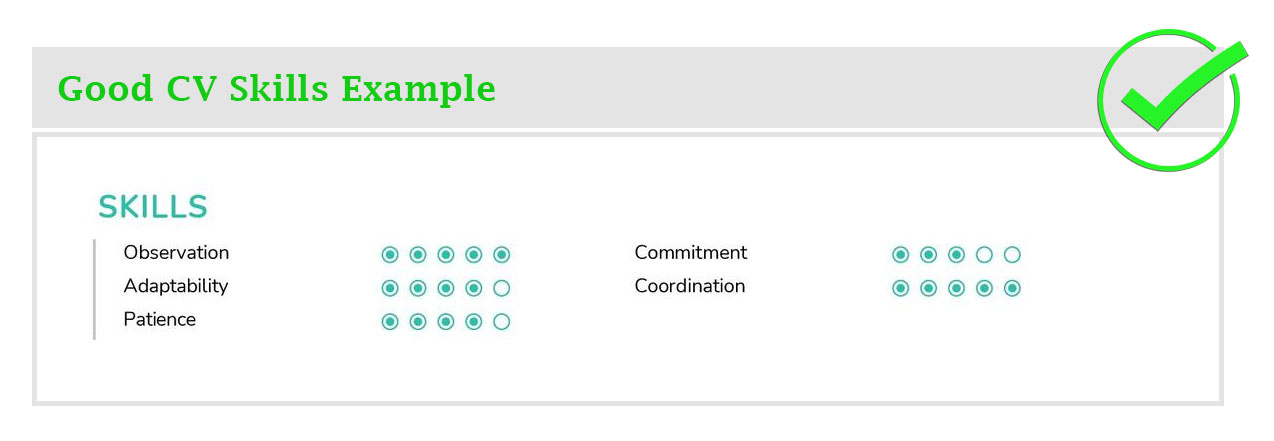

Tips:
- Use short and easy to understand bullet points.
- Check your spelling and grammar.
- Use what they are asking for as an example and then put your own skills into that category.
- Use numbers if you are comfortable with them, but using too many numbers can make it look like a list of items being thrown at them.
- If you have to use a lot of bullet points to explain your skills, then you should probably write a separate document or add something more to one of the other sections on your CV.
6. CV Contact Details:
This is an optional section that you can add if you have any other contact details that employers may require from you. You shouldn’t put a phone number here unless it is a real job that requires it, because they will soon find out if they call your phone number and get your voicemail or leave a message that is never returned or get no answer when calling your mobile. You are much better off using the contact details section on your website or social media profile sites to send them an email to tell them who you are and what position they want you for. It is also a good idea to put your email address here, so they can get in touch with you if necessary.
Tips:
- Use short and easy to understand bullet points.
- Check your spelling and grammar.
- If you have a phone number, put it in correctly here without all the extra spaces at the beginning.
- If you don’t have a mobile number and landline number, then remove it from here.
- If you do have a mobile number, then put it correctly here without all the extra spaces at the beginning.
7. CV Hobbies and interests:
This section is an optional section that you can add if you have any hobbies or interests. Usually you can use bullet points to list these things here but you may also include it in a separate section on your CV, if necessary.
Tips:
- Use shorter and easy to understand bullet points.
- Check your spelling and grammar.
- Make it clear and not too complicated to read.
Tips for Improvement: - Don’t put something too complicated here like a political statement or controversial topic.
8. CV References:
This is an optional section that you can add if you have a reference list of people who have agreed to be your referees. You should put their names and contact details on another separate sheet of paper because if there are too many names, it will look bad on your CV. You should also tell them that these are your referees and after they are finished reading it, to pass it on to them.
Tips:
- Use short and easy to understand bullet points.
- Check your spelling and grammar.
- Make it clear and not too complicated to read.
- You do not have to put them in a separate sheet but it looks better if you do.
- You should always check how your name is written on your CV before you send it off. Make sure they can be sure that they are writing down the right person’s details. Any wrong spelling or names will mean that the referees will not give an approval.
9. CV Other Information:
This is an optional section that you can add if you have any certifications or computer skills to add to your CV. If you have not obtained any of these, don’t worry about it and leave it out to start with. It will hurt you more than help if you put this on your job application when your CV is not yet ready.
Tips:
- Use short and easy to understand bullet points.
- Don’t use more than 4 or 5 bullet points maximum.
- Check how well you write about computer skills, this is an important section for some jobs.
- Check your spelling and grammar.
- This is a good place to add information about your hobbies, if you do not put them in another section.
CV Format:
The best way to make sure your CV looks good is to make it look like a list of items and then highlight the important parts in bold or different colors. You can also use bullet points to separate each section if you are not sure which one is more important than others for your CV.
Another way of making sure your CV looks good on paper is to add an action plan for the job you are applying for. This will help the recruiter or employer to understand how much effort is needed and what you can do for this position in addition to write a detailed explanation about all of your skills and qualifications.
CV Writing Tips:
- Make it easy for the reader to see what makes you a good candidate for the position by writing a clear, concise summary of your background, work experience and education.
- Use a functional layout that emphasizes skills and accomplishments instead of jobs and dates of employment.
- Include details about relevant work experience, including descriptions of your achievements or contributions at each job, specific skills and knowledge you gained in each role, and any awards received or professional affiliations held during employment.
- Use active voice and verbs with the correct past tense.
- Use active language: “I” instead of “we” or “us.”
- Begin each paragraph with an action verb.
- Draw your reader’s attention to key skills and accomplishments you learned rather than to what you did or employer’s name you worked for.
- List your skills or accomplishments in a specific order.
- Use bullets (preferably numbered) to group items under related headings.
- Detail steps in the job that you performed and list the tasks or responsibilities assigned to you (avoid “a” for “an”).
- Give 5-10 facts about each accomplishment; no more than 3-5 points are better, as it makes the person sound superficial or too conceited when he/she talks excessively about their “accomplishments.”
- If the duties of a previous job were different, list your primary responsibility/role (job title), how often you performed the task and a consequence of how it helped or hurt the company.
- Include examples of tangible results produced in your previous work experience and accomplishments, both positive and negative.
- Use the best CV builder to get every thing set professonaly
Examples of a Good CV:
Here is an example of a good CV list that may get you interviews but not the job.
When you are writing your CV, look at the examples below and follow them as closely as possible. However, it is important that you spend enough time preparing your CV to make sure that it is perfect for the position you are applying for. You should post your CV on Monster and LinkedIn, where there are many opportunities in different positions of companies.
Student CV Example
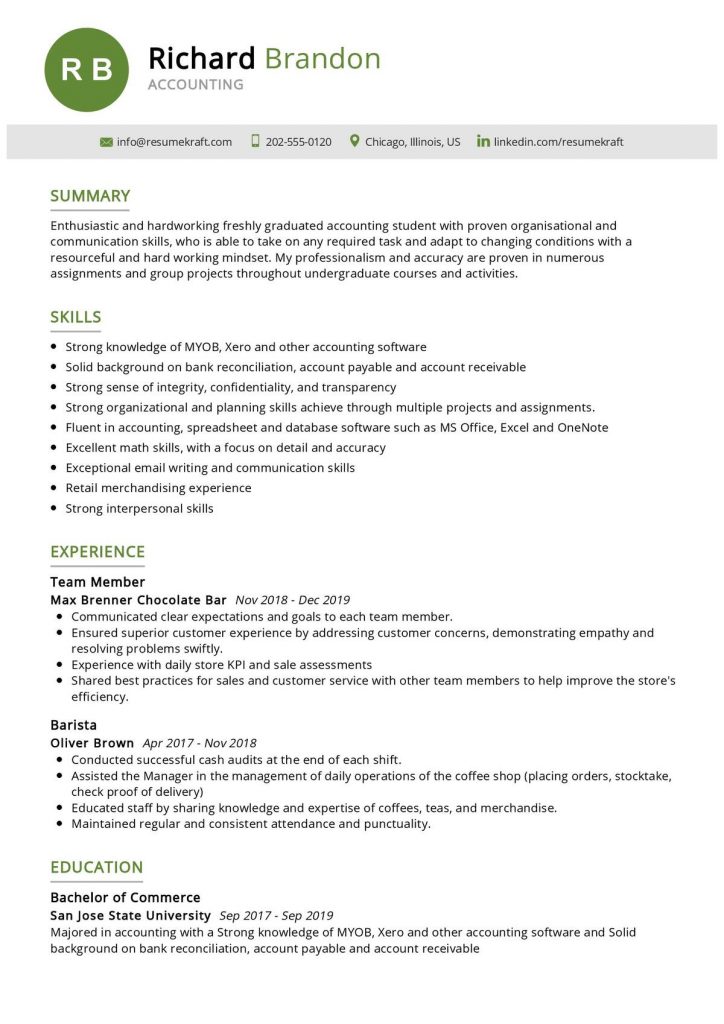
Customer Success Manager CV Example
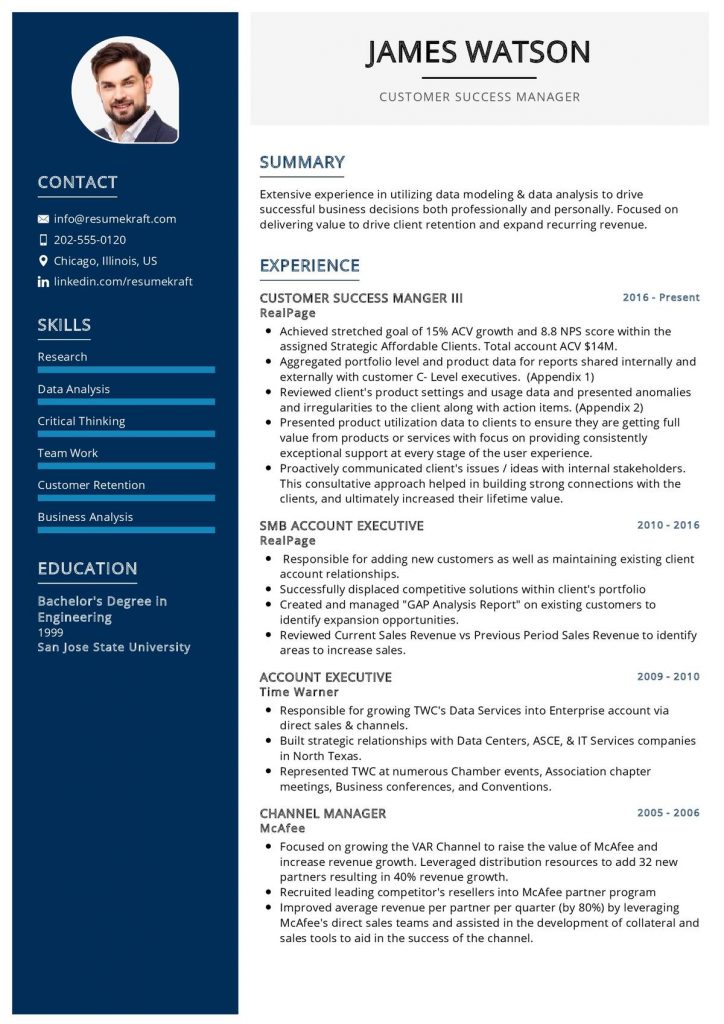
Scrum Master CV Example
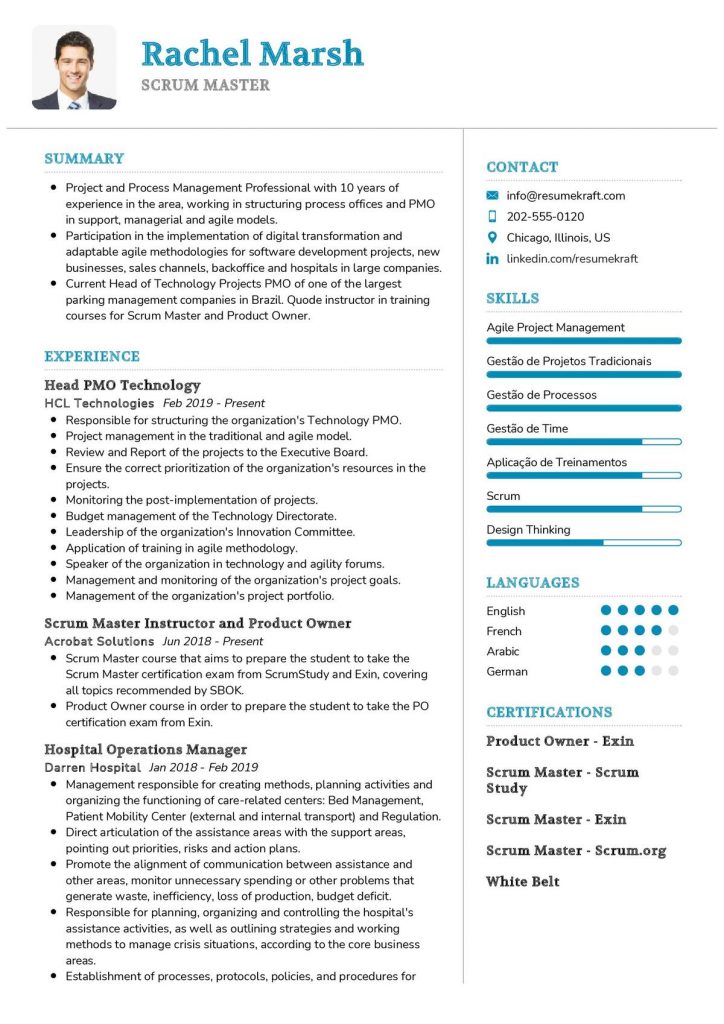
Retail CV Example
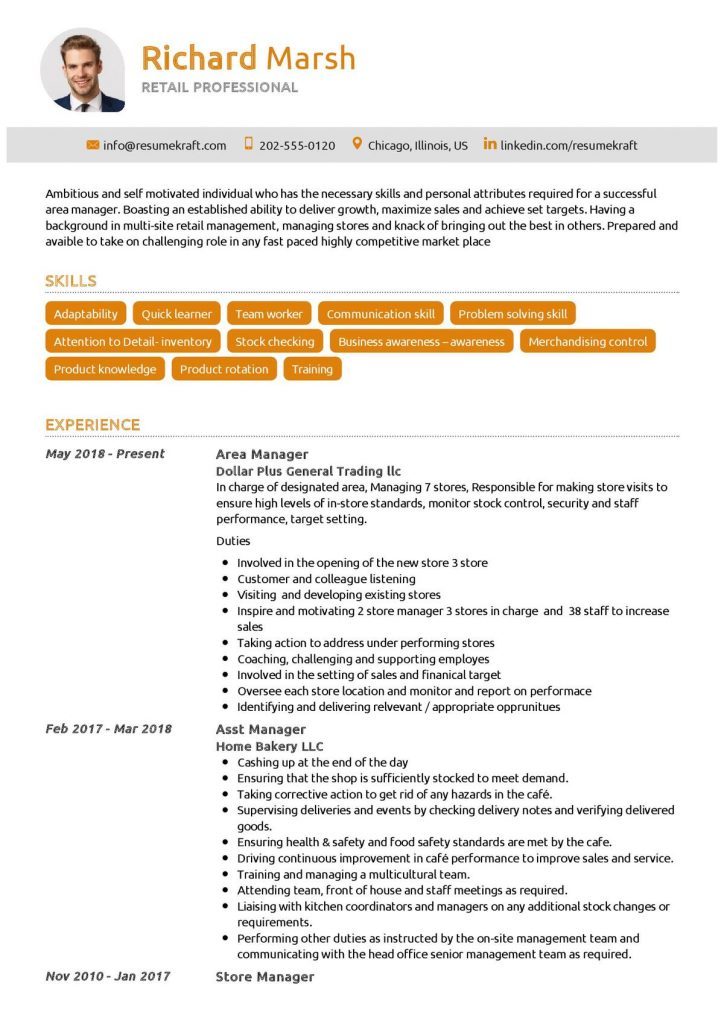
Technical Designer CV Example
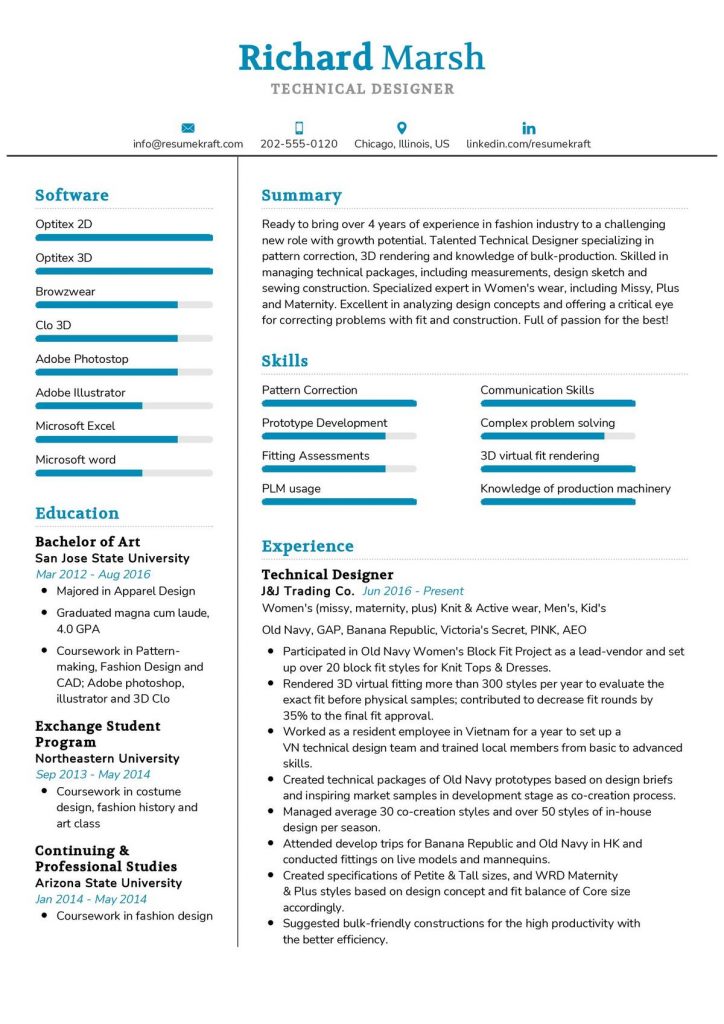
Translator CV Example
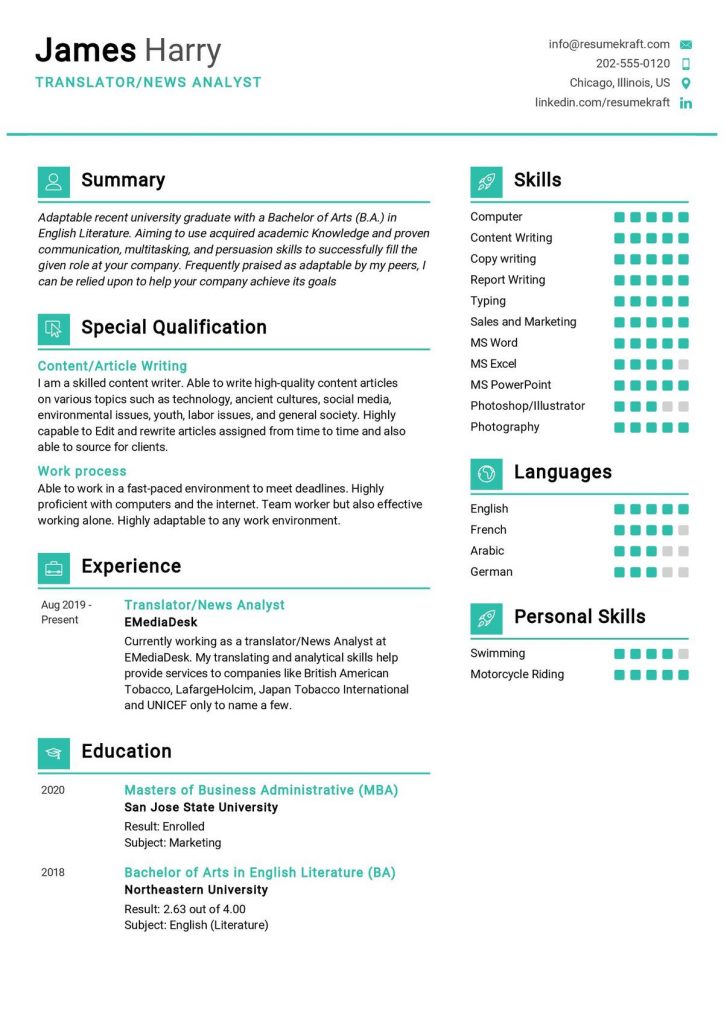
Data Scientist CV Example
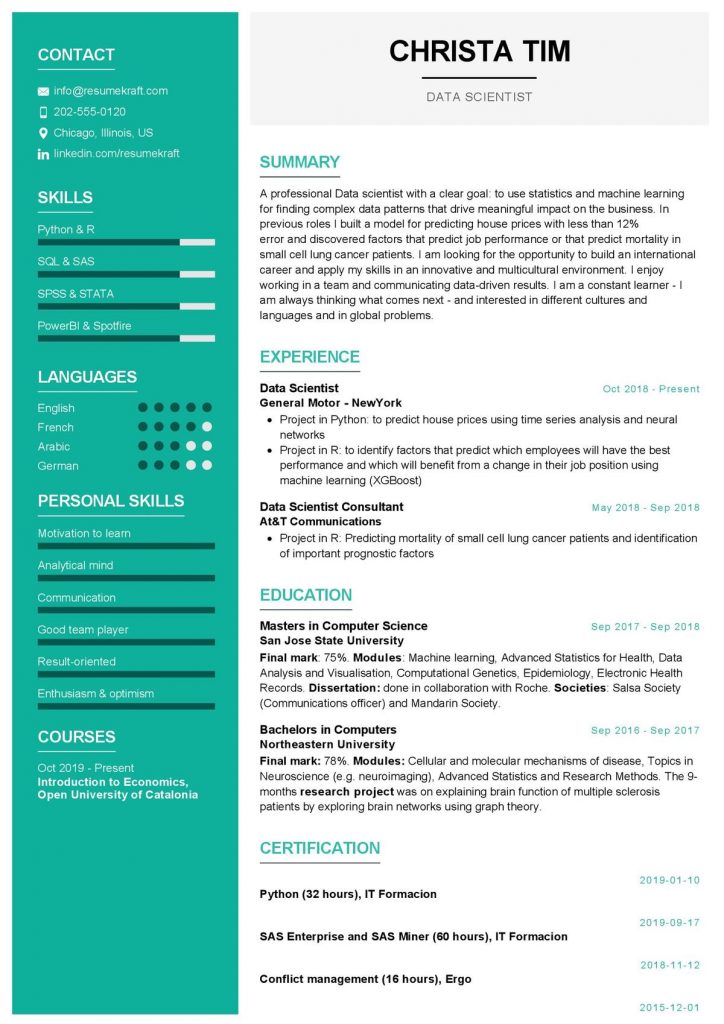
Project Manager CV Example
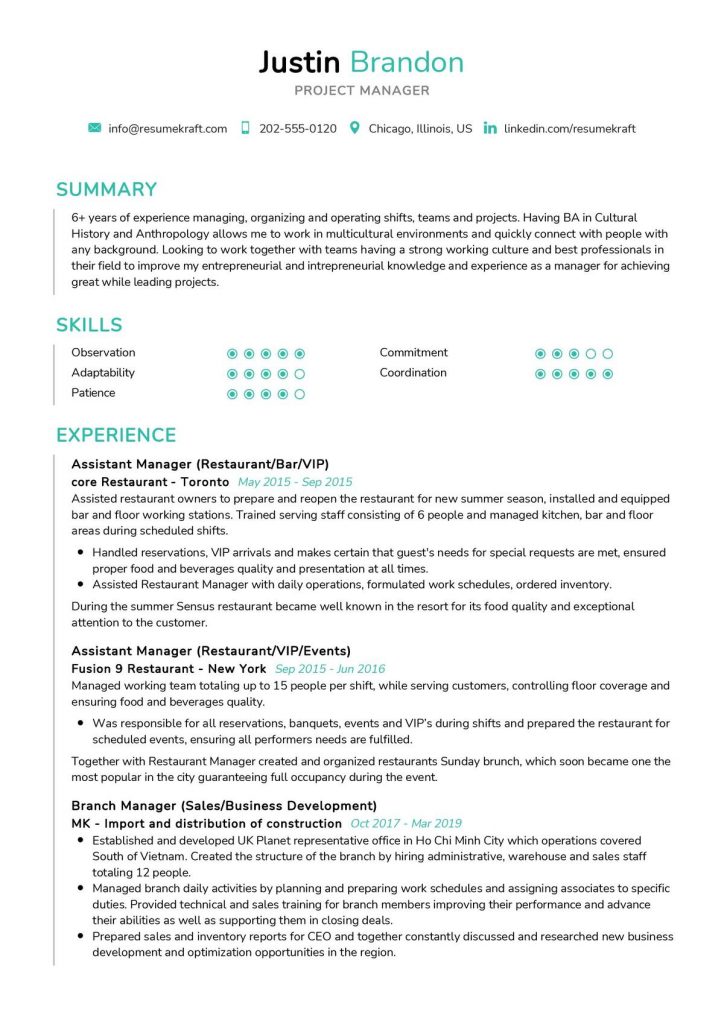
Sales Executive CV Example

QA CV Example

Training Instructor CV Example
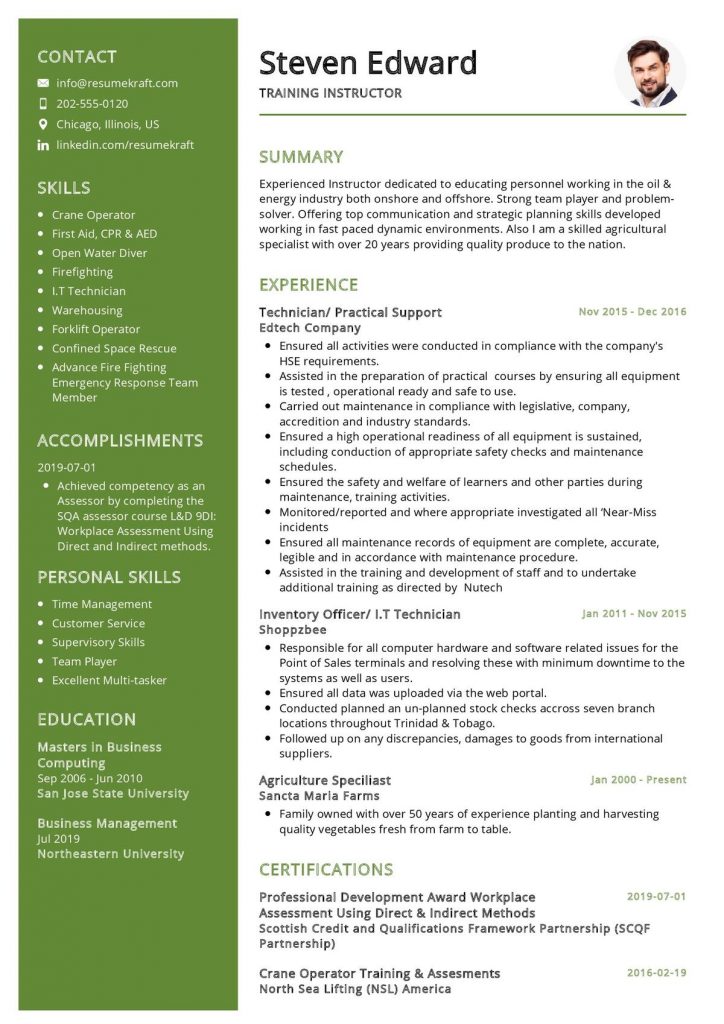
Software Testing CV Example
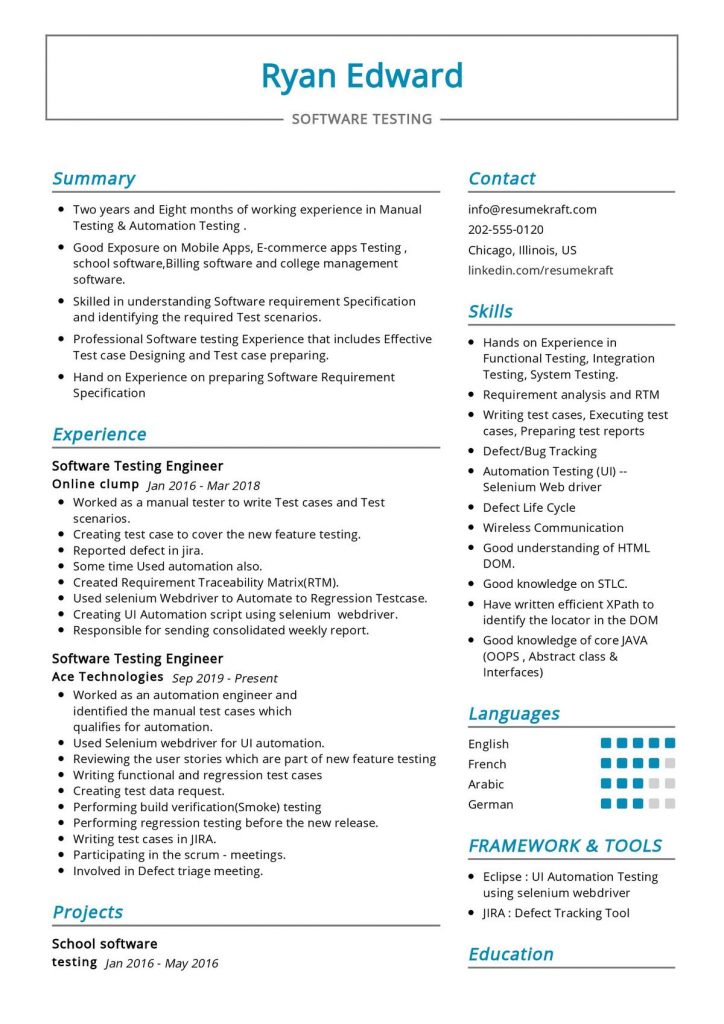
Intern CV Example
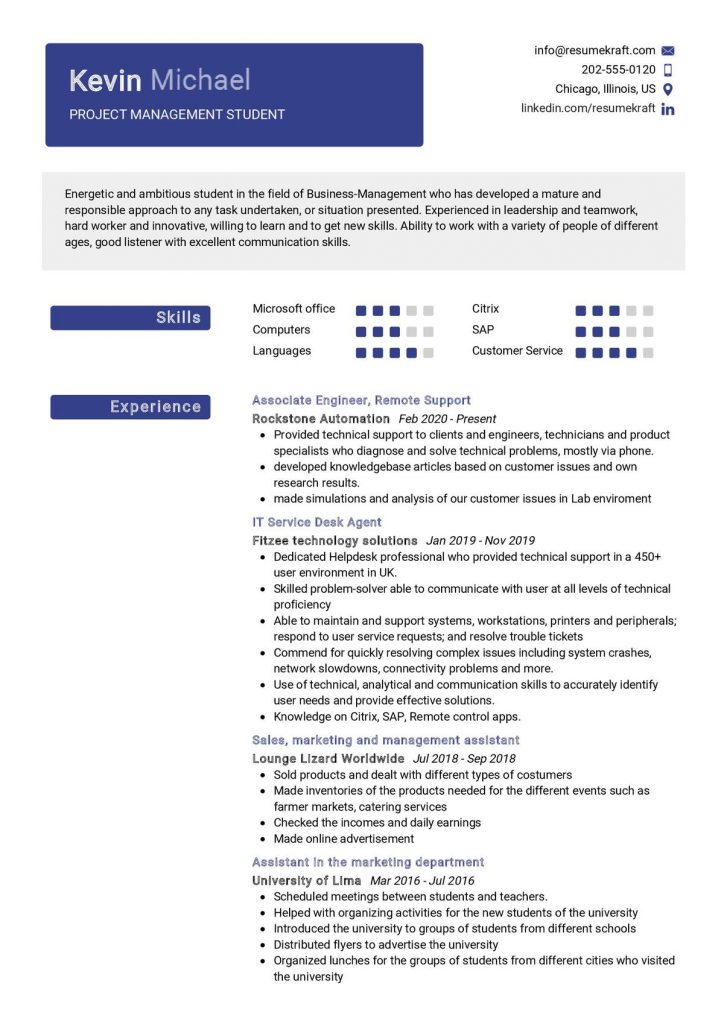
Customer ManagerCV Example
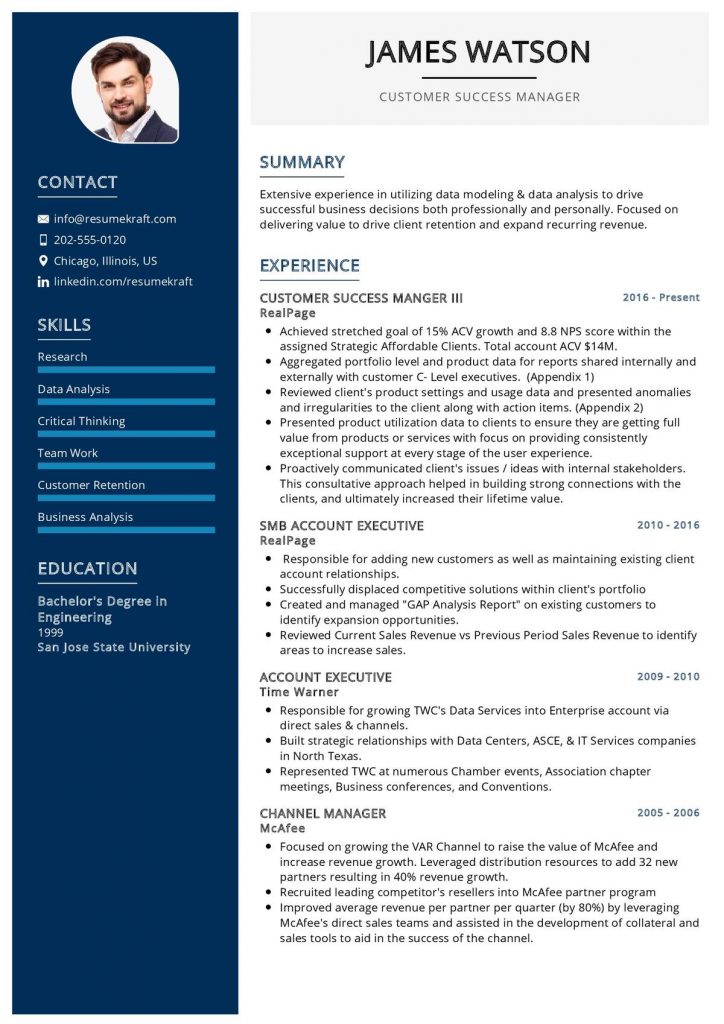
Graduate CV Example
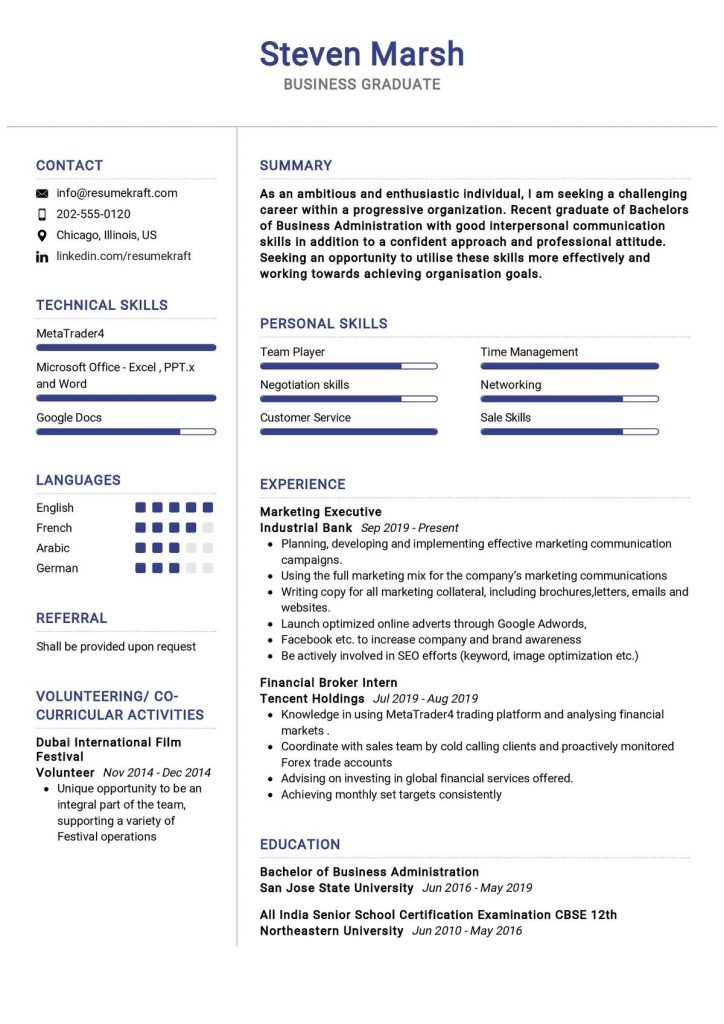
Chemist CV Example
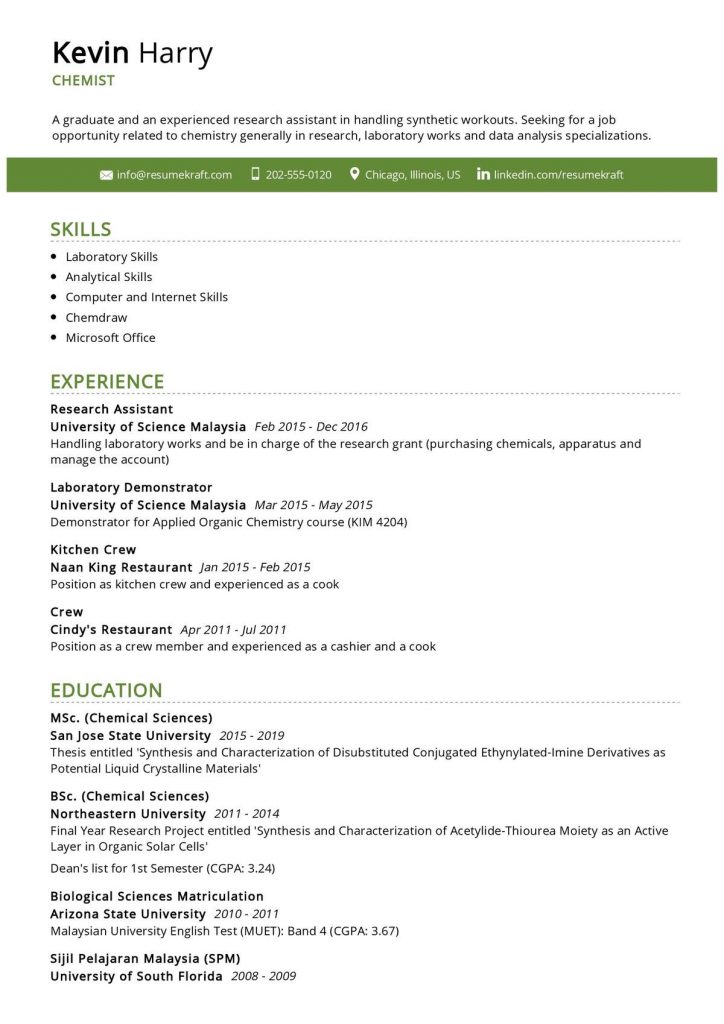
Sound Manager CV Example
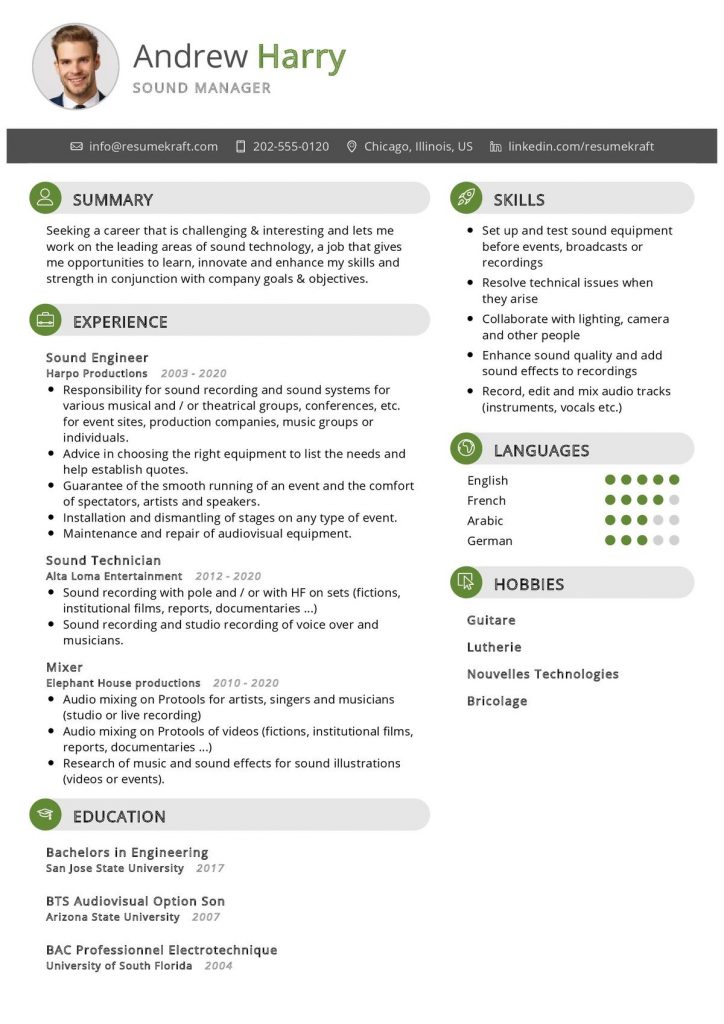
Administrative Manager CV Example
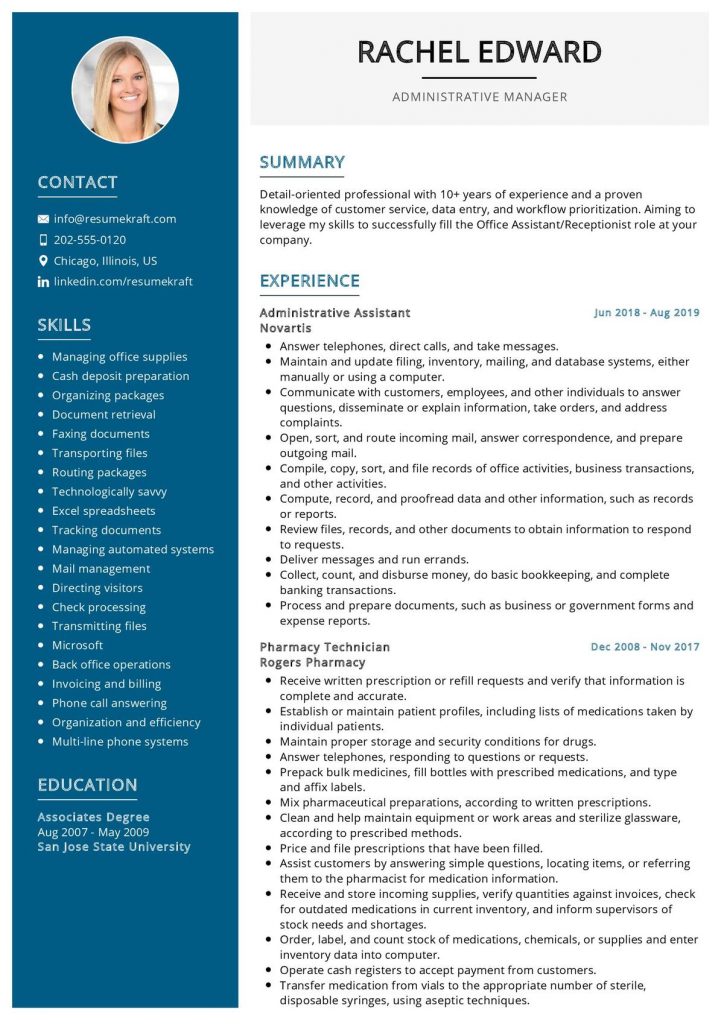
Physical Therapist CV Example
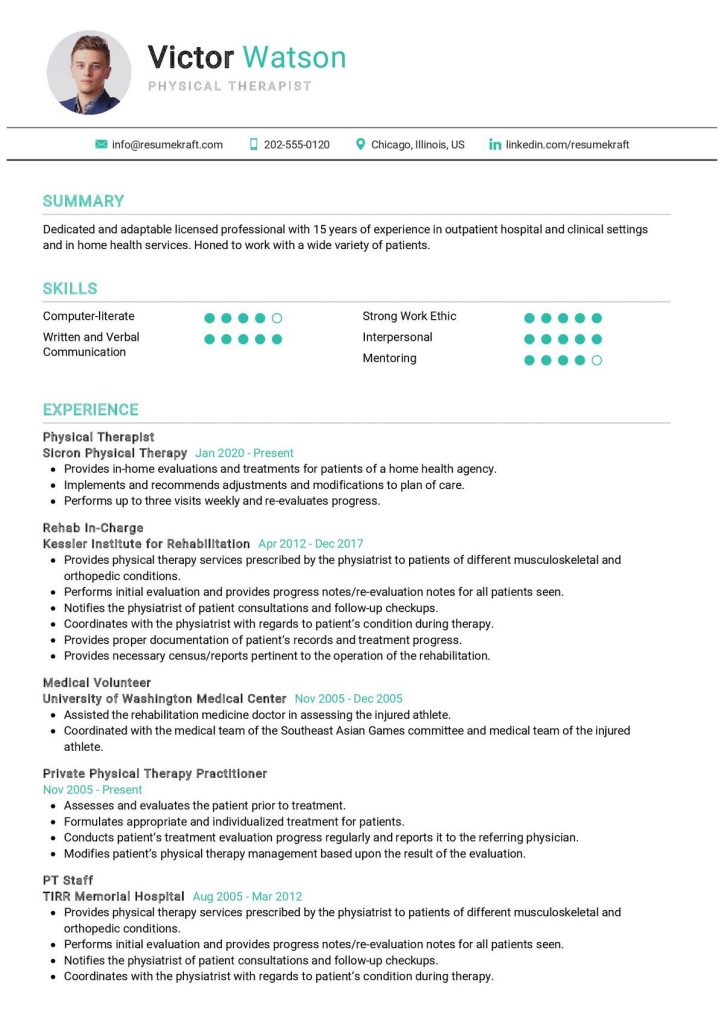
Journalist CV Example
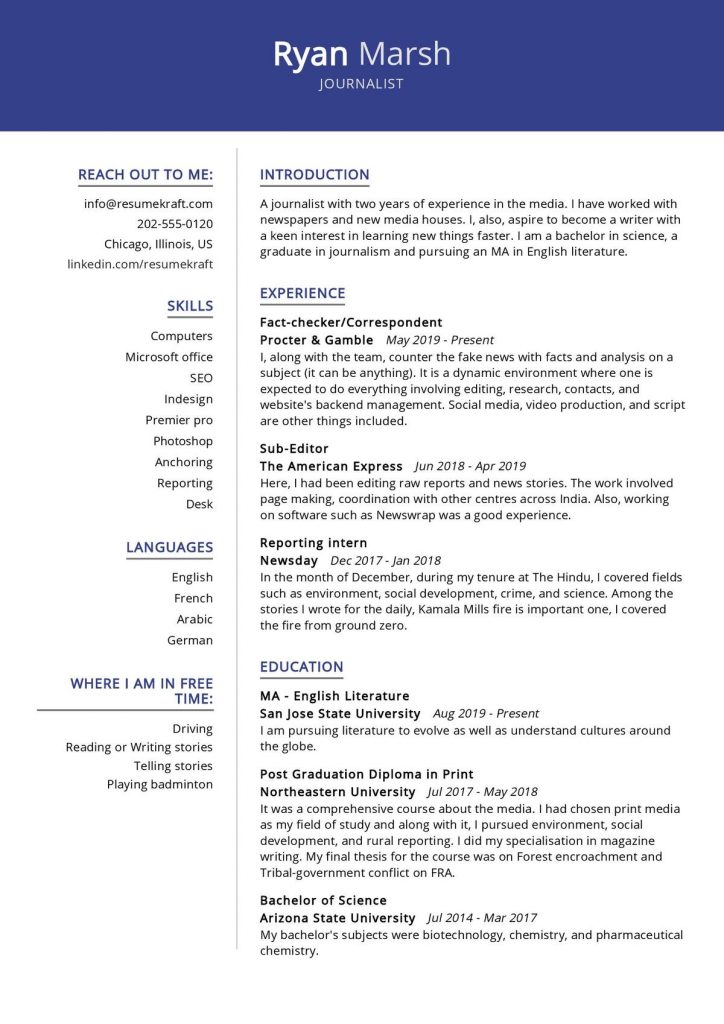
Consultant CV Example
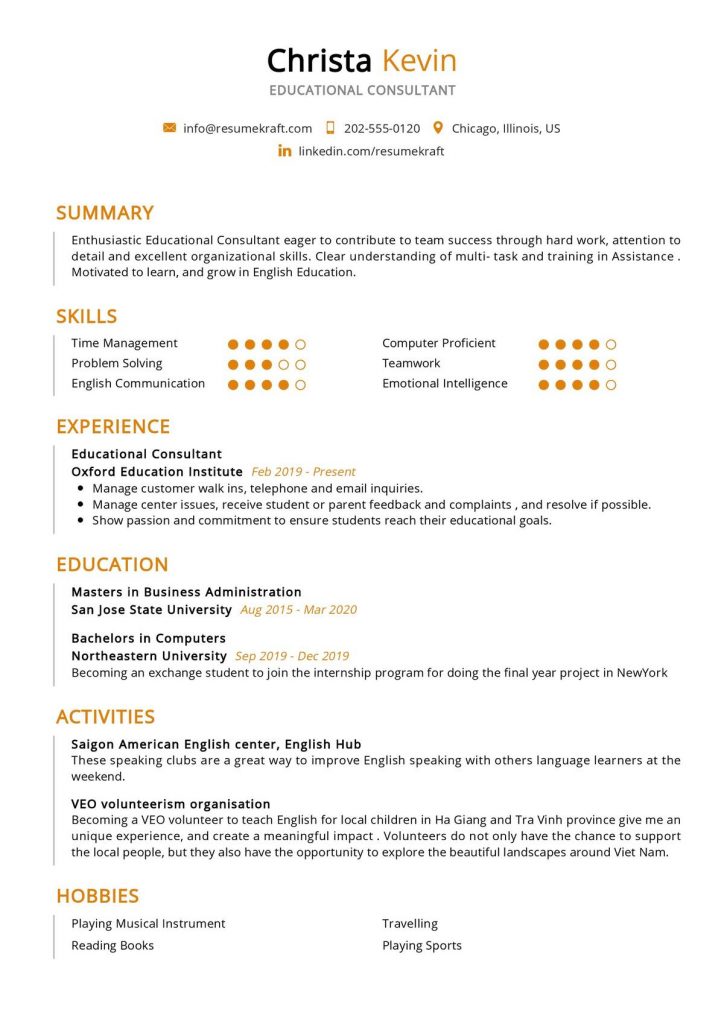
Application Specialist CV Example
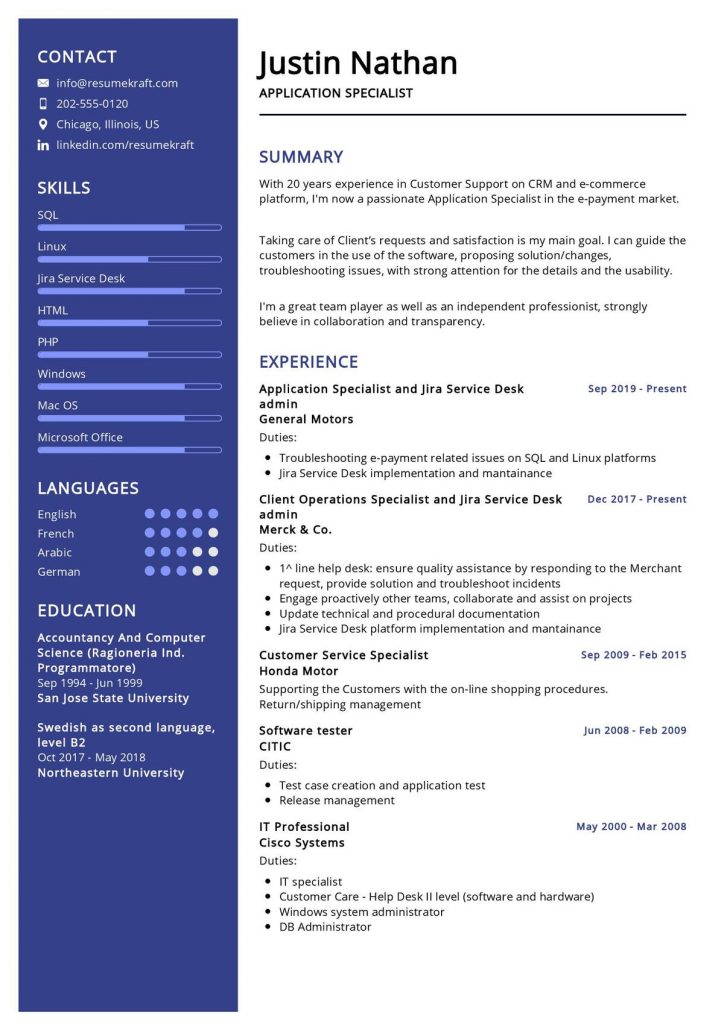
UX Designer CV Example
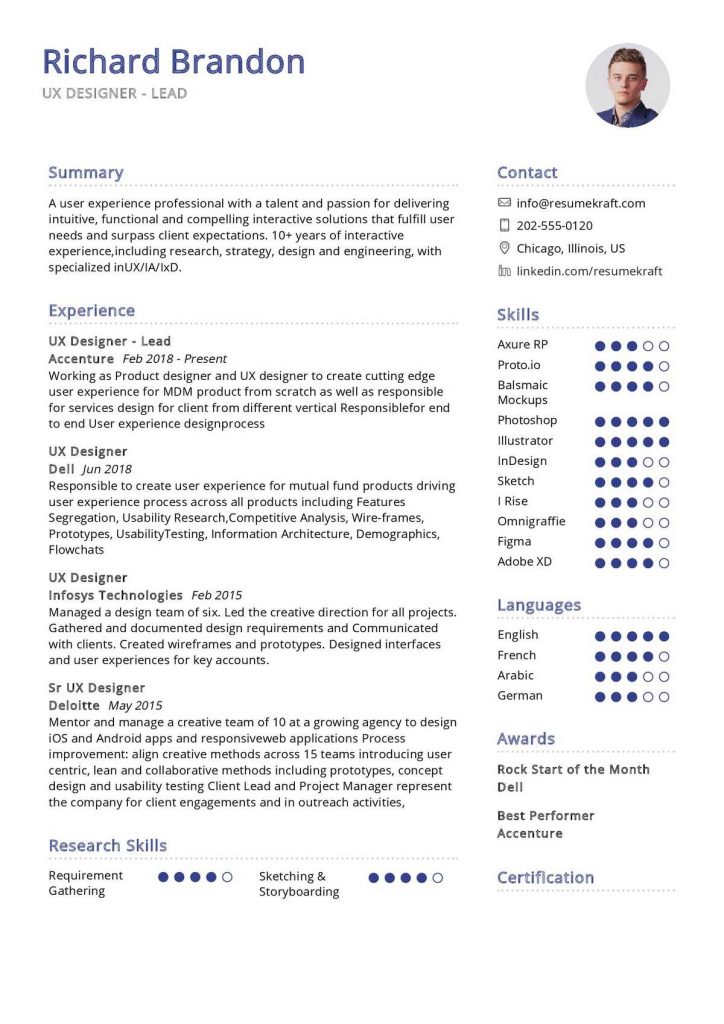
Relationship Manager CV Example
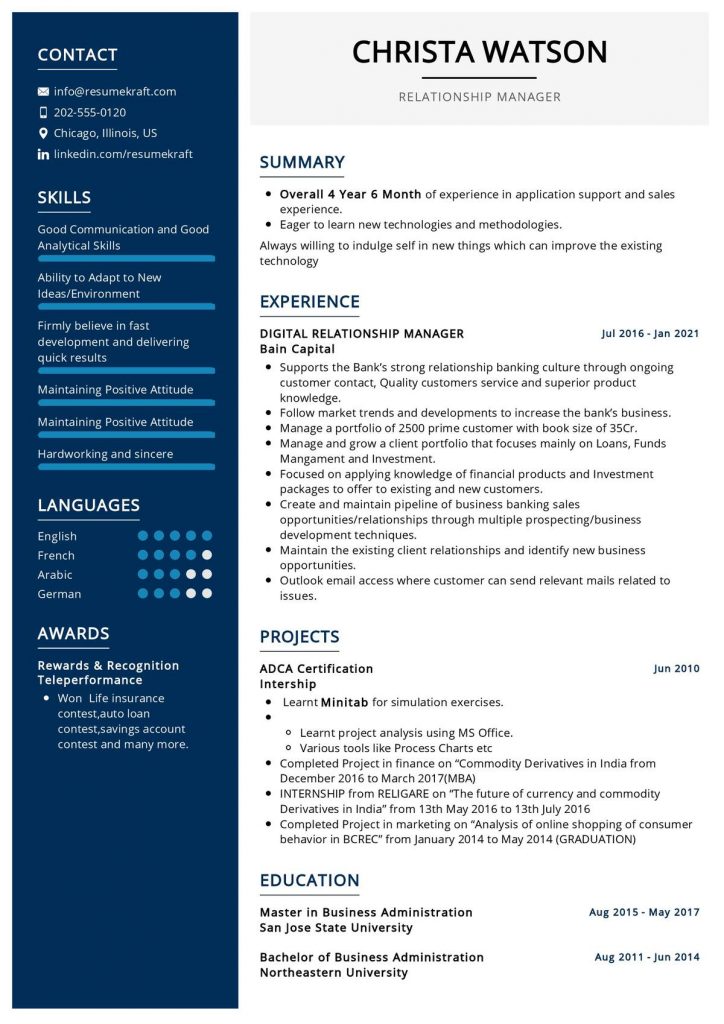
Web Developer CV Example
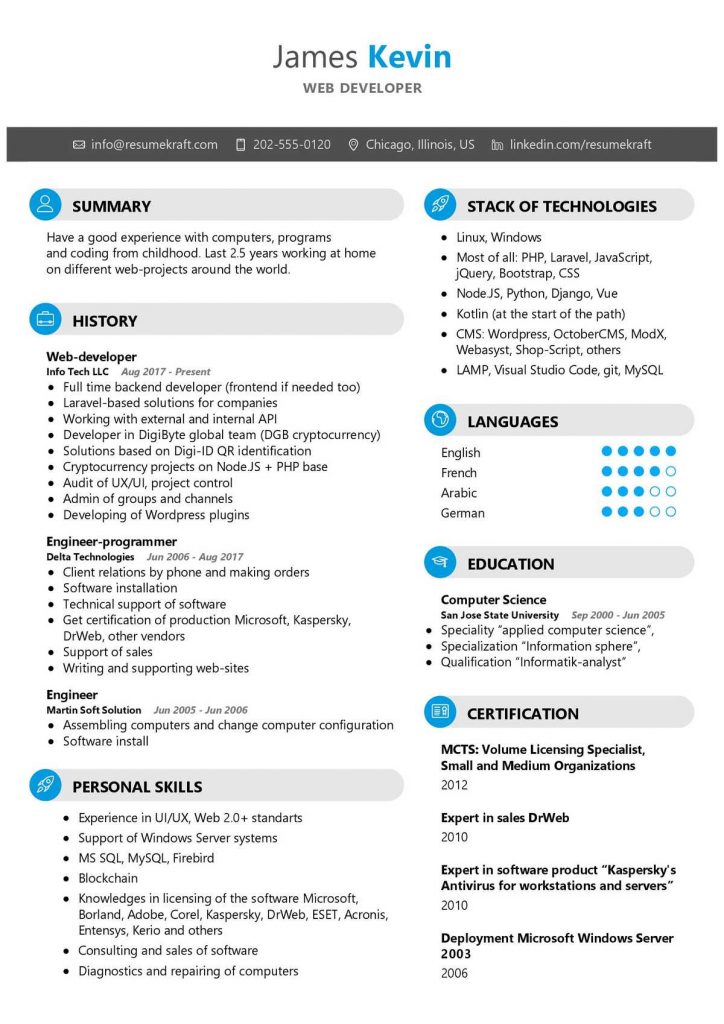
Civil Engineer CV Example
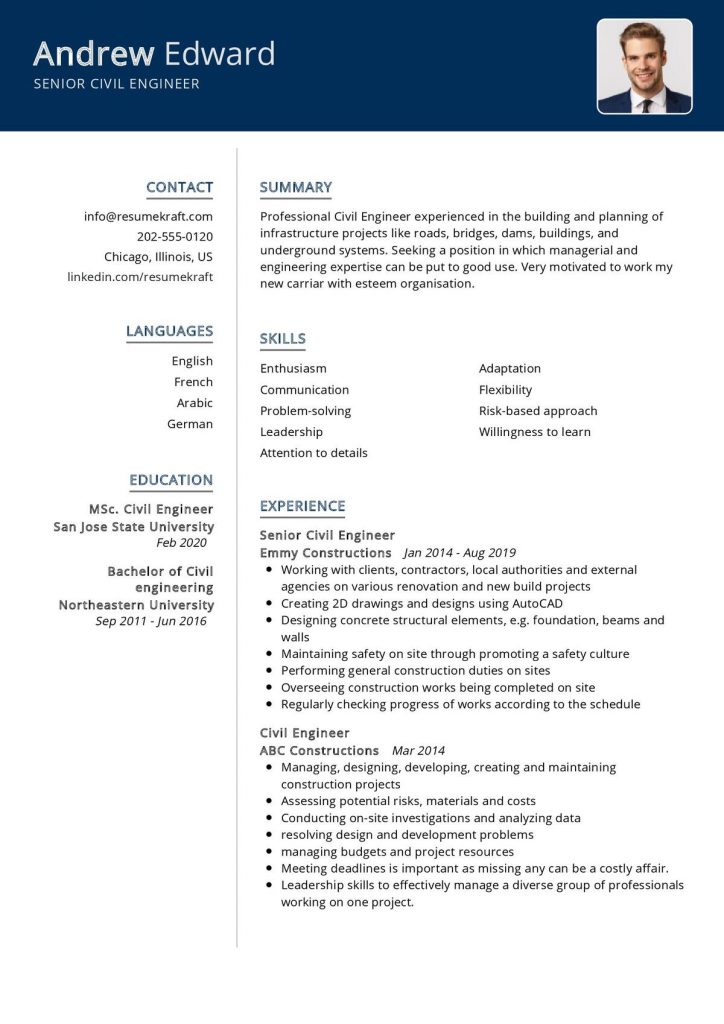
Nurse CV Example
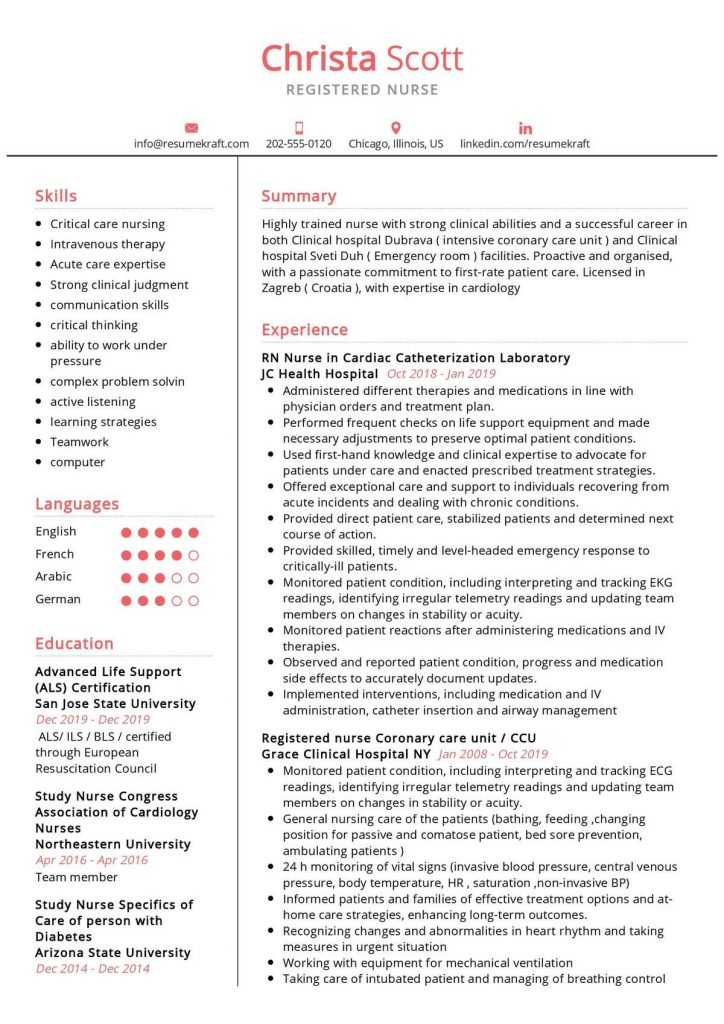
Personal Assistant CV Example
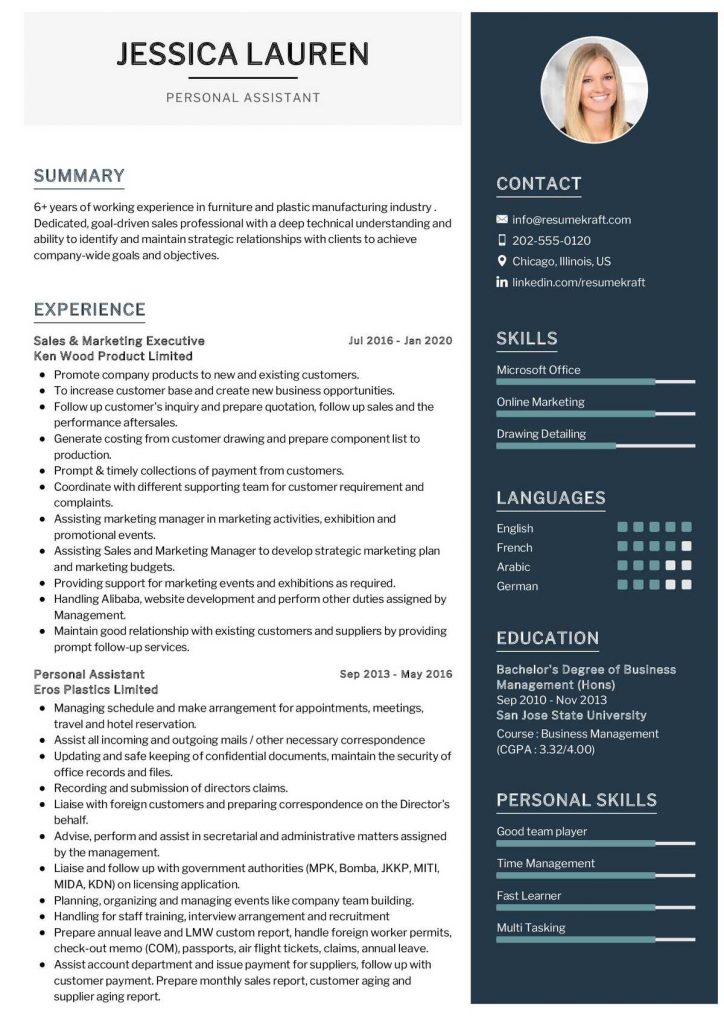
Insurance Advisor CV Example
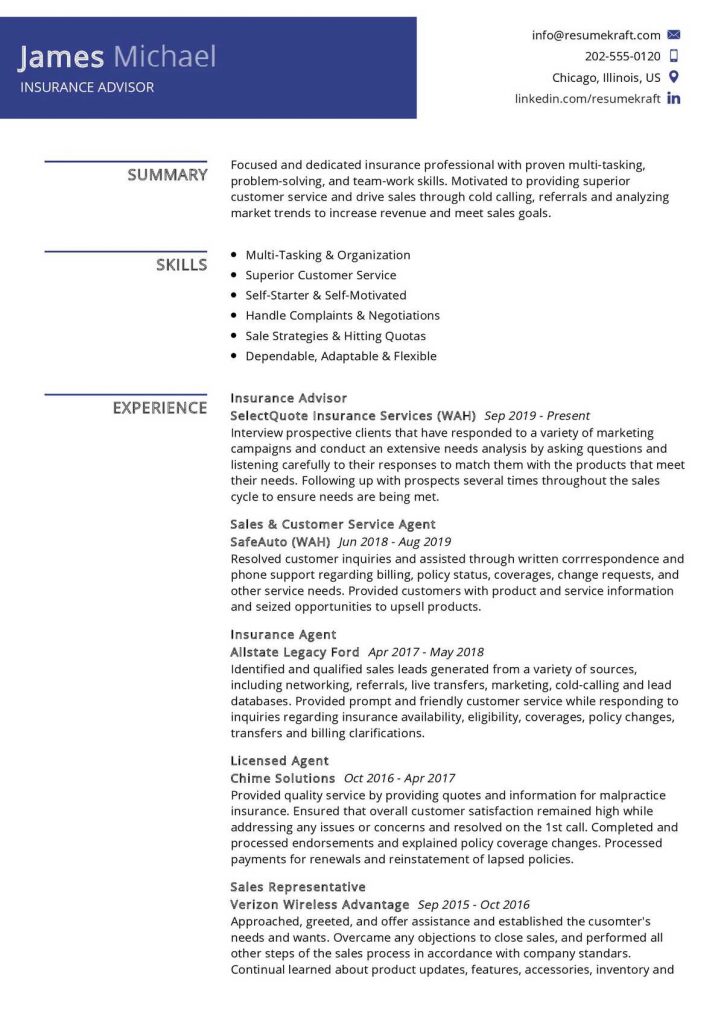
Sales Specialist CV Example
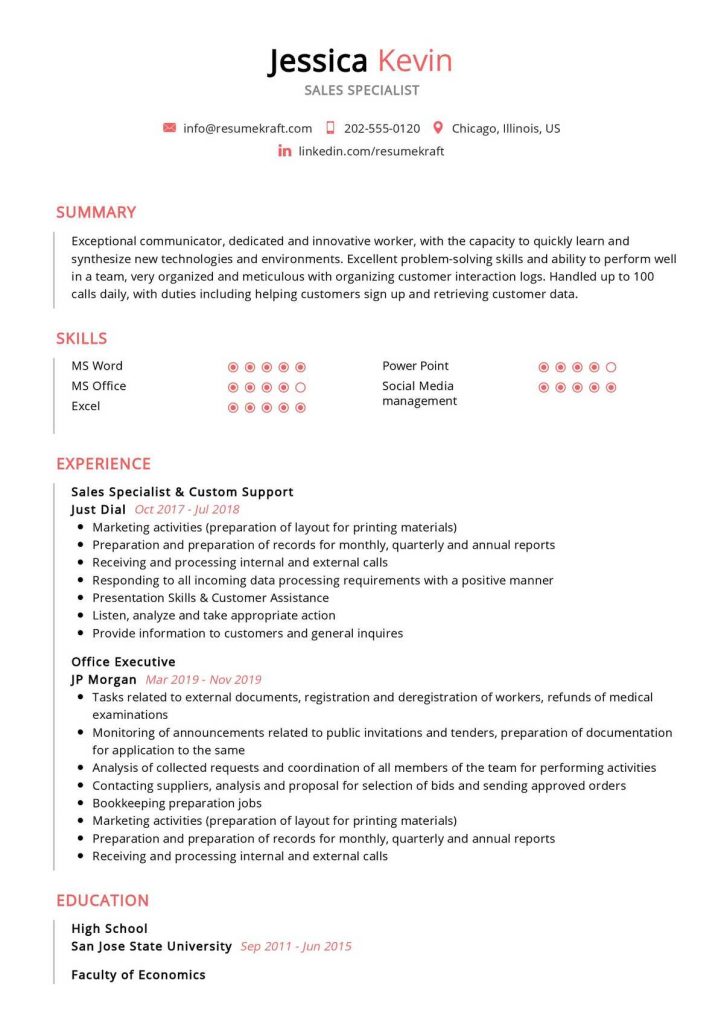
Marketing CV Example
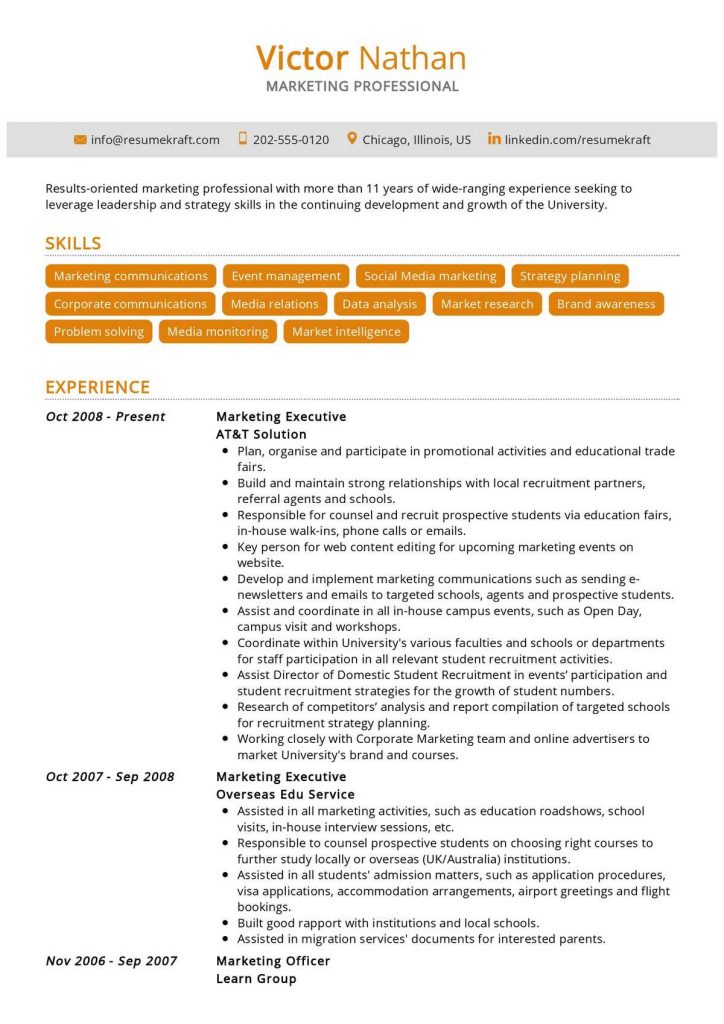
Interpreter CV Example
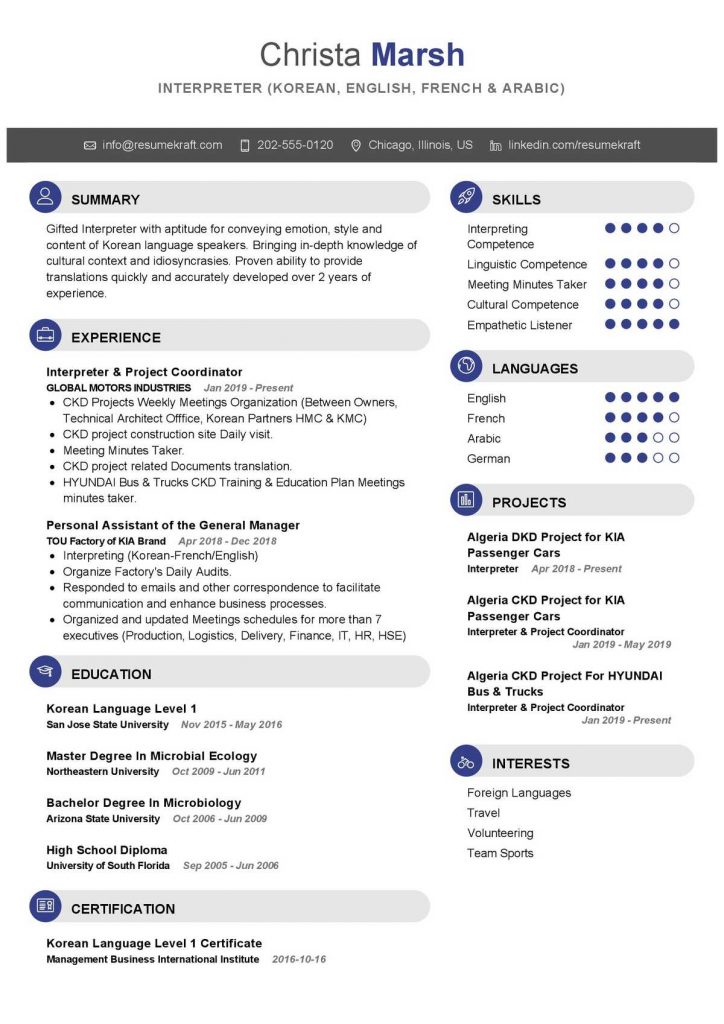
Risk Manager CV Example

Data Officer CV Example
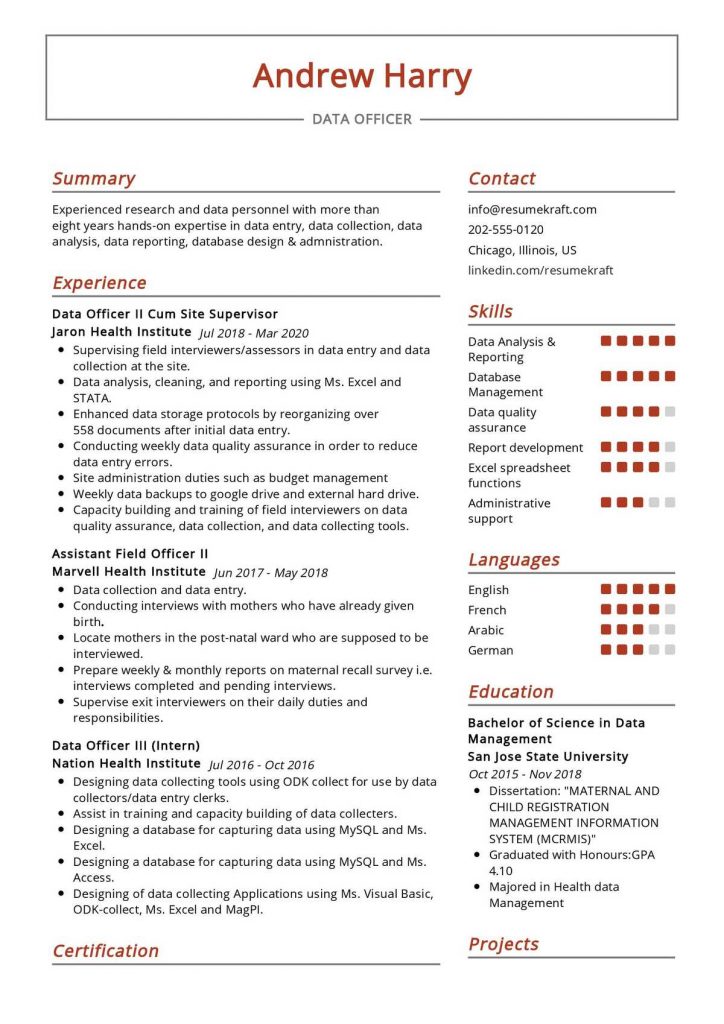
Business Consultant CV Example
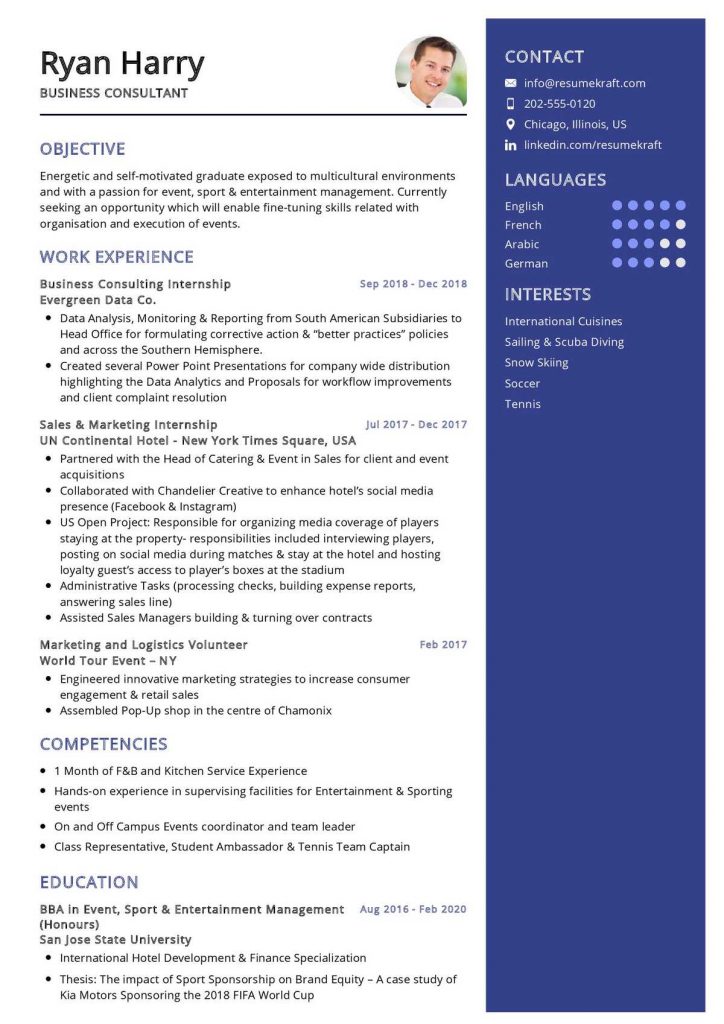
Program Manager CV Example
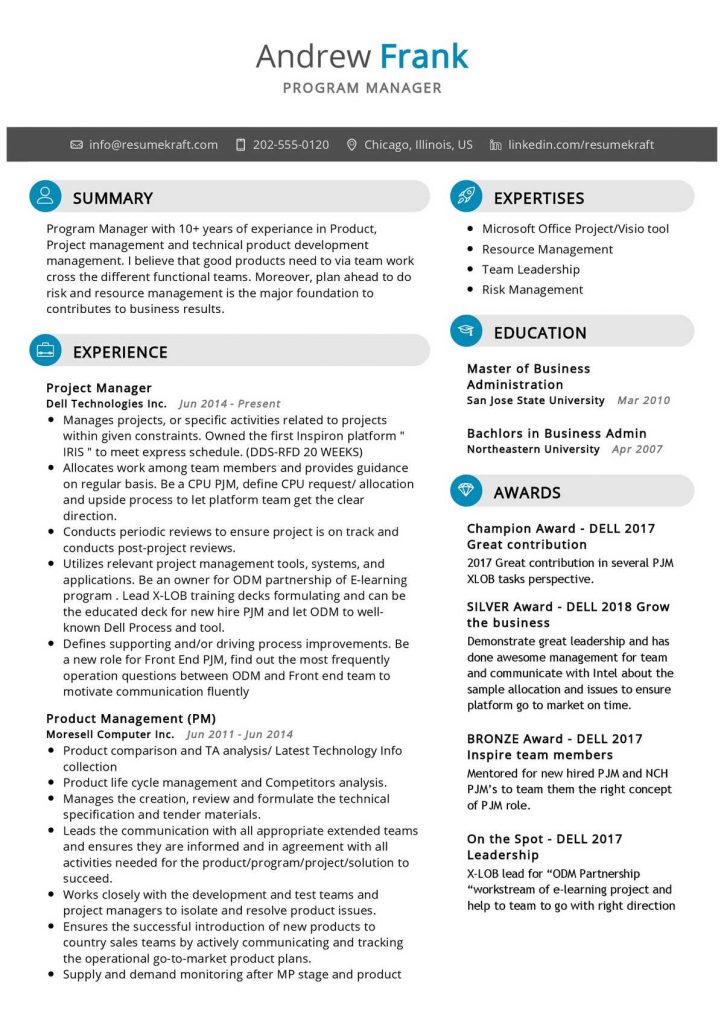
Accounts Executive CV Example
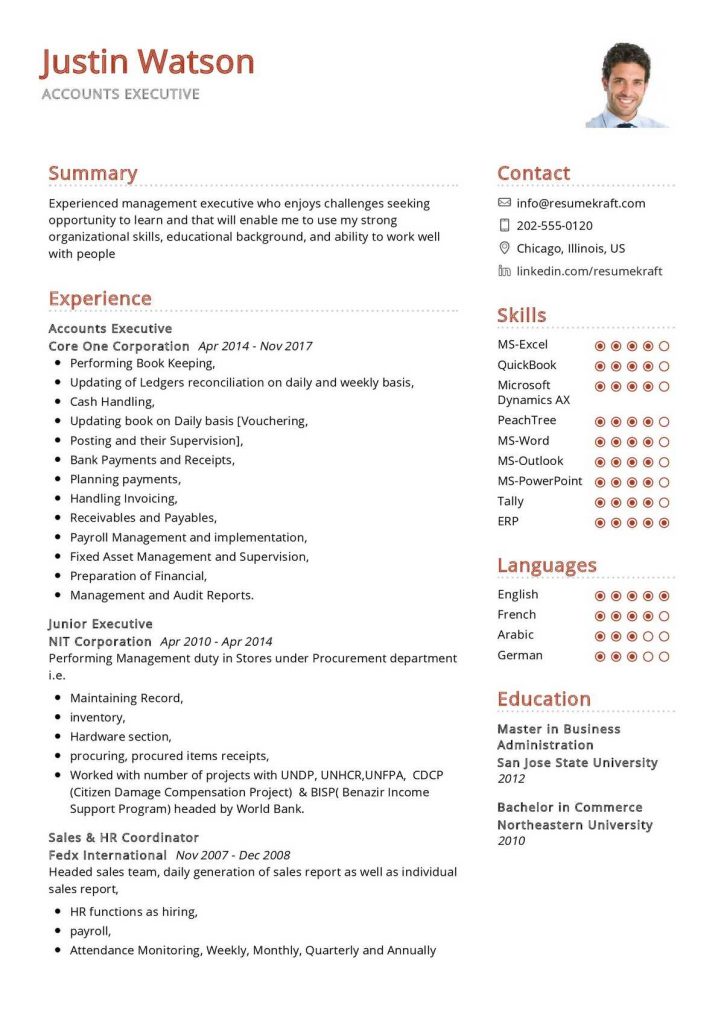
Business Development Consultant CV Example
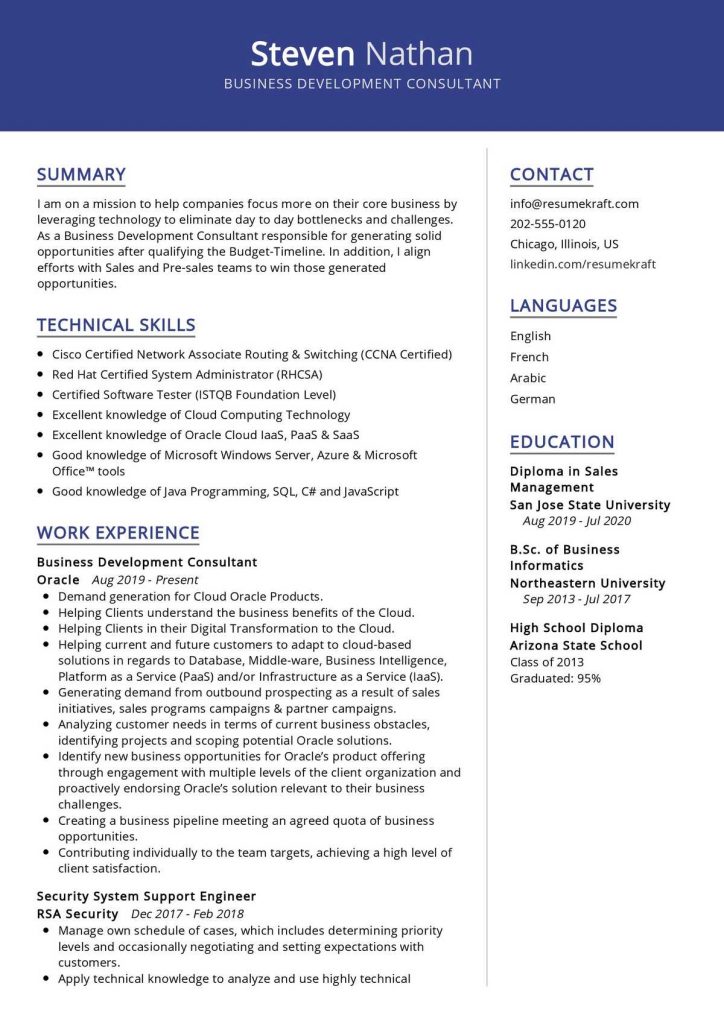
Customer Service CV Example
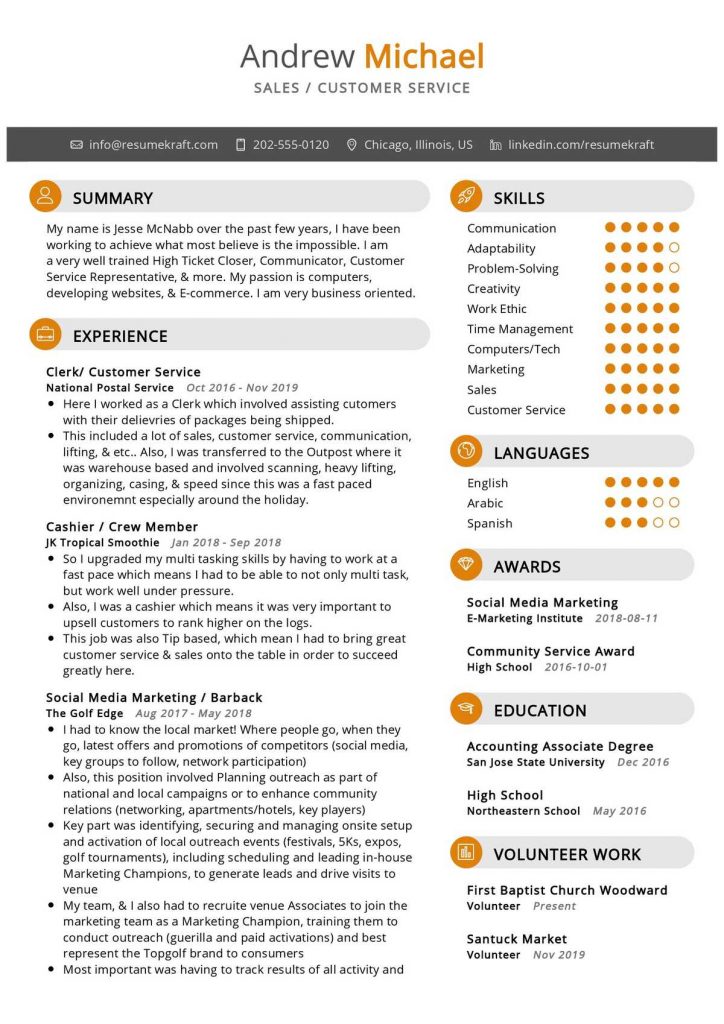
Registered Nurse CV Example
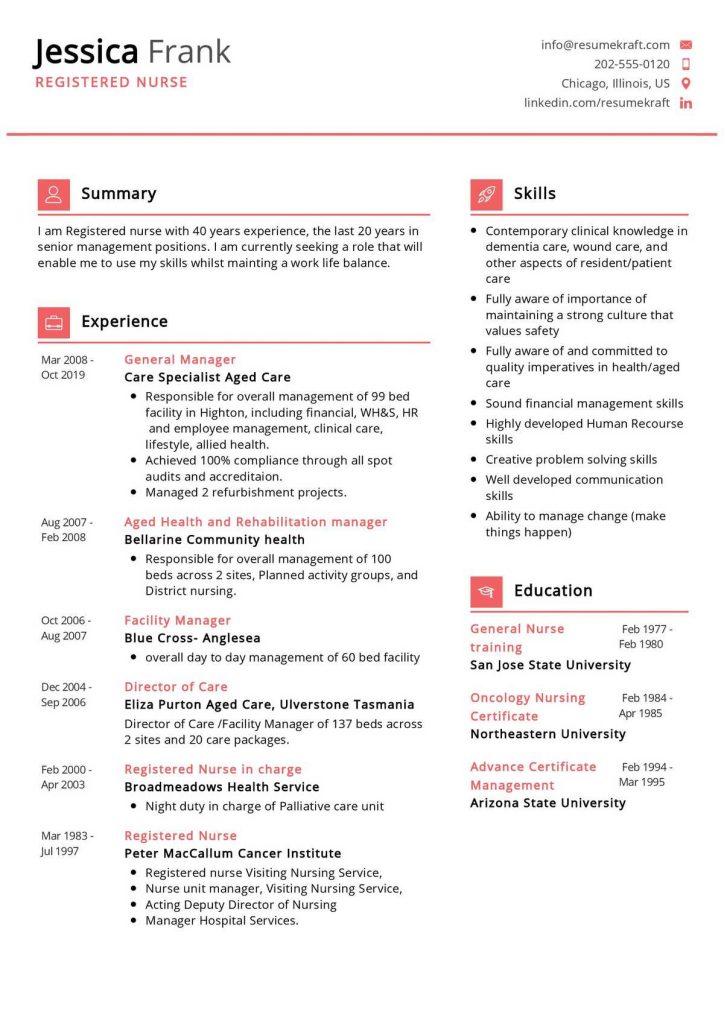
Data Analyst CV Example
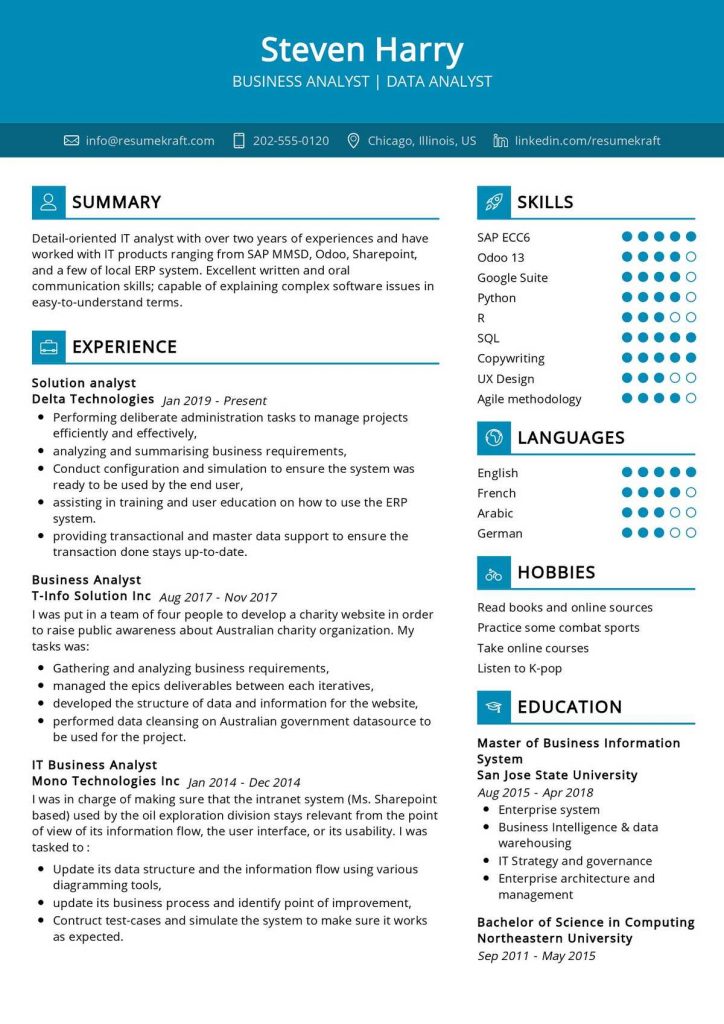
Engineer Controls CV Example
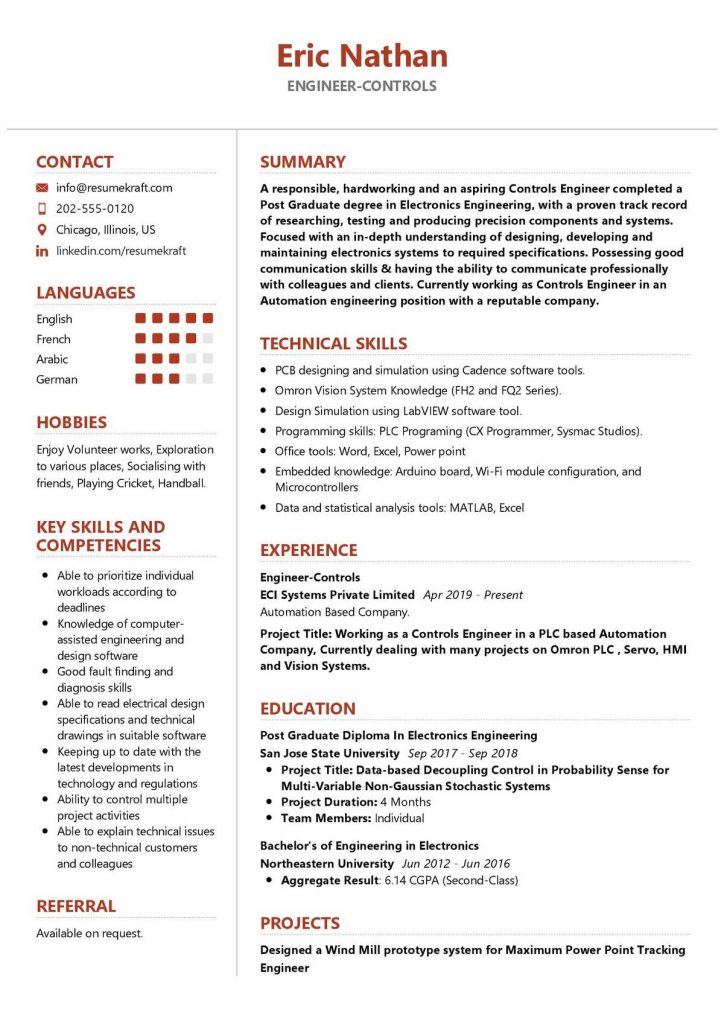
Portfolio Manager CV Example
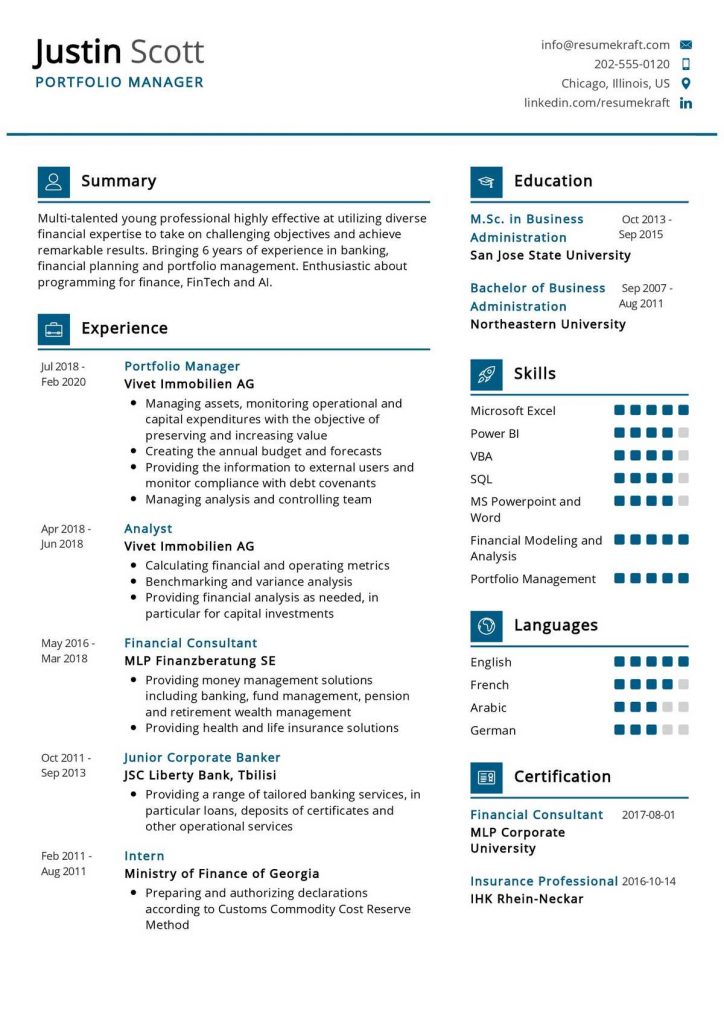
Marketer CV Example
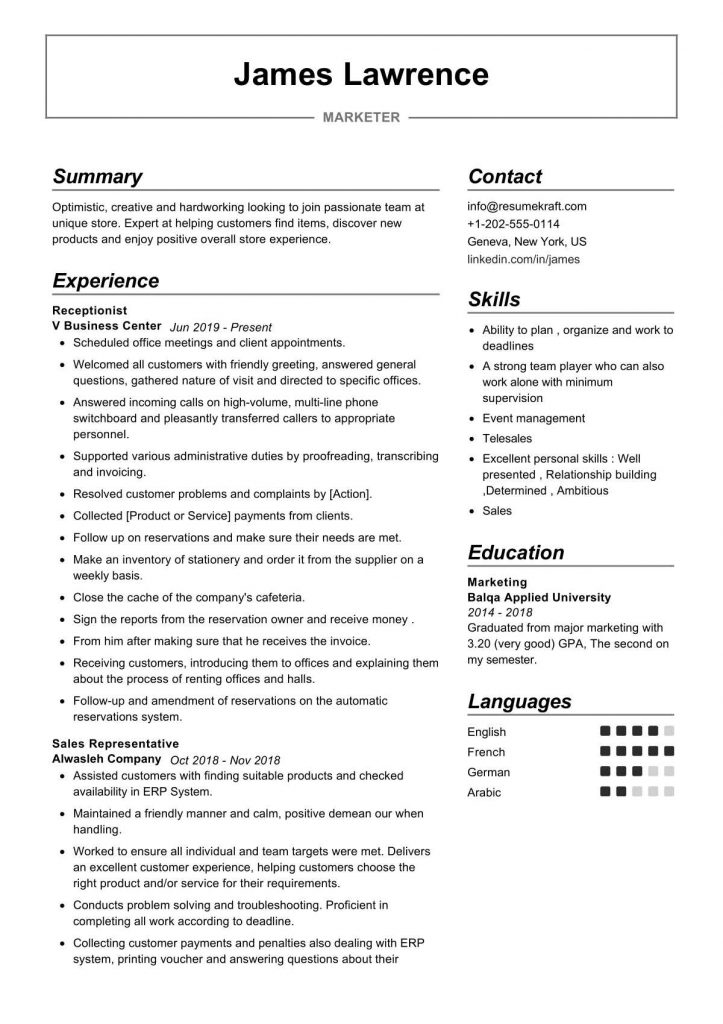
Financial Controller CV Example
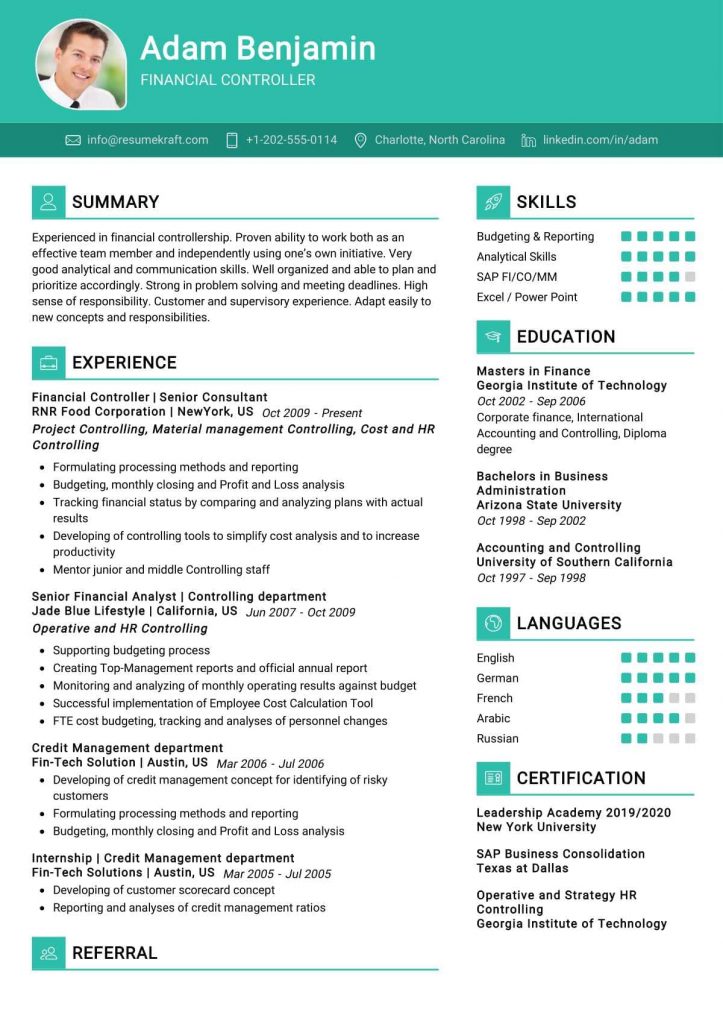
Finance Director CV Example
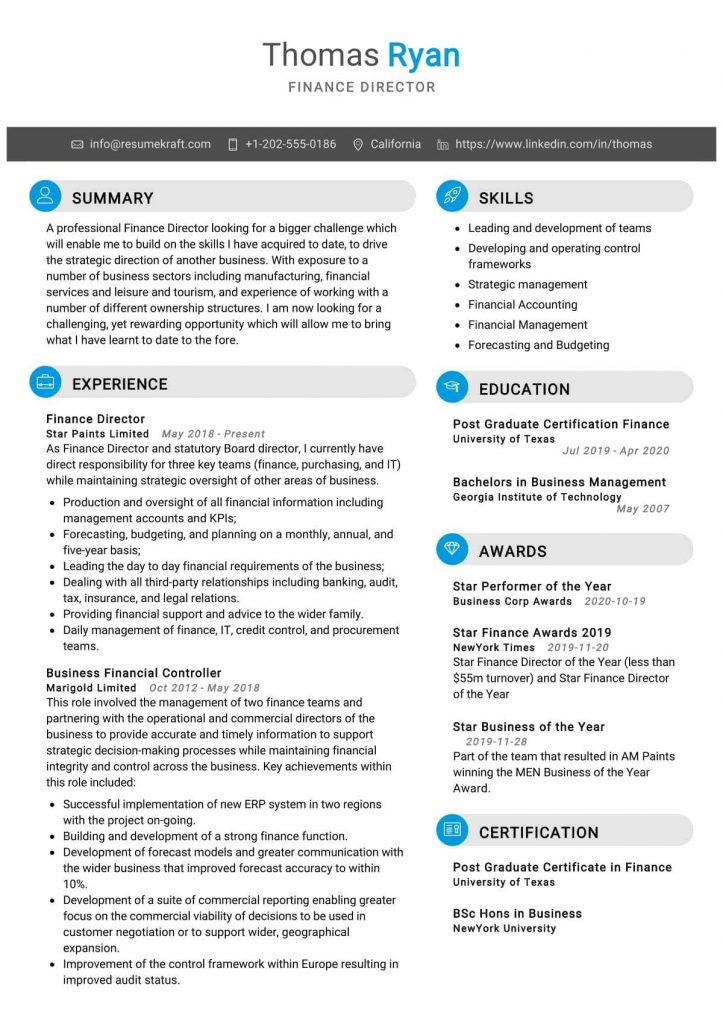
Instructional Designer CV Example
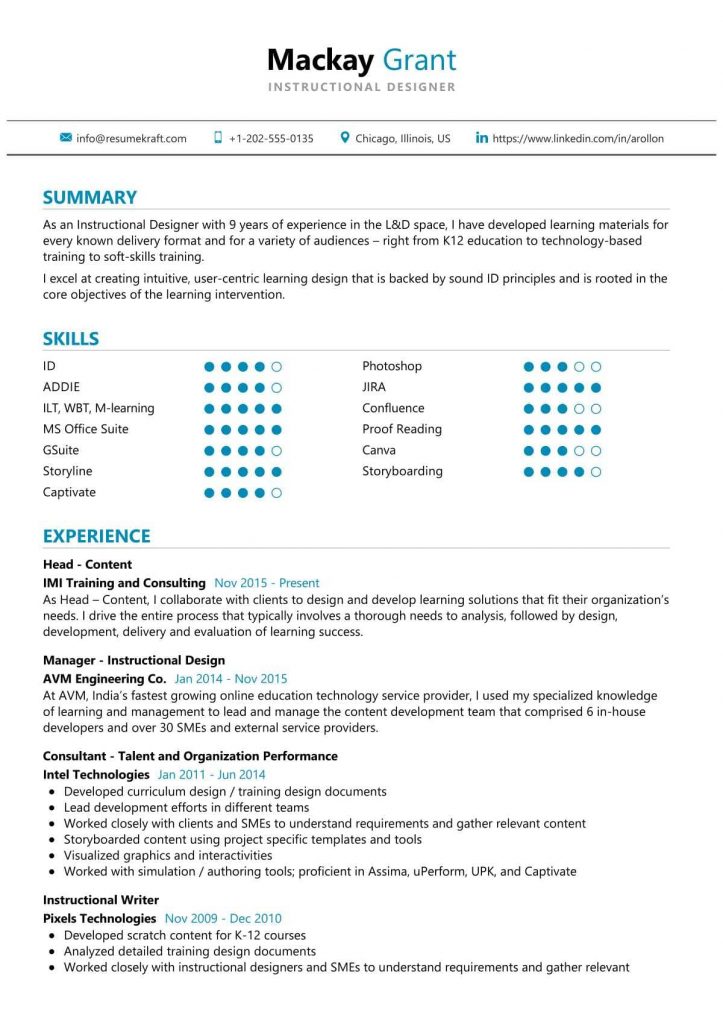
logistics Manager CV Example
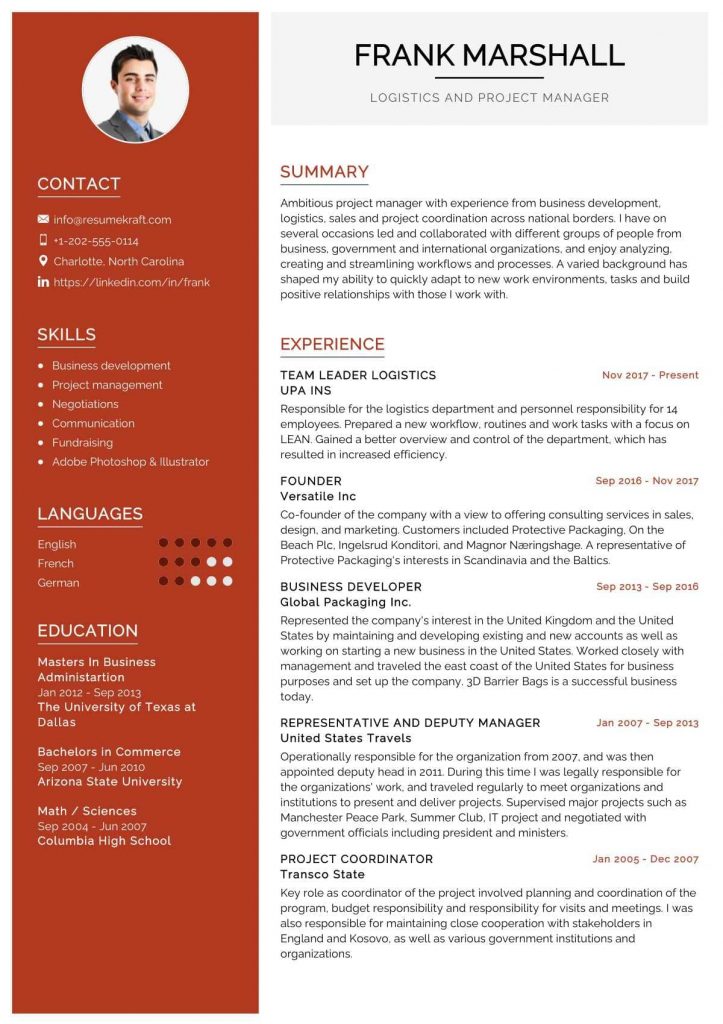
Account Manager CV Example
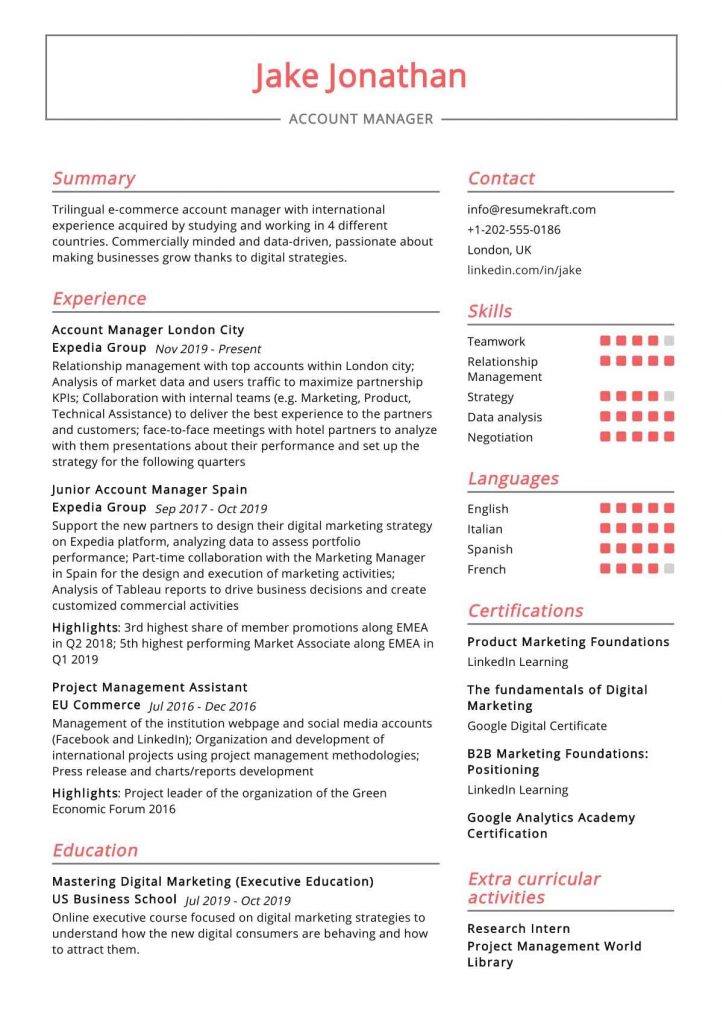
Computer Scientist CV Example
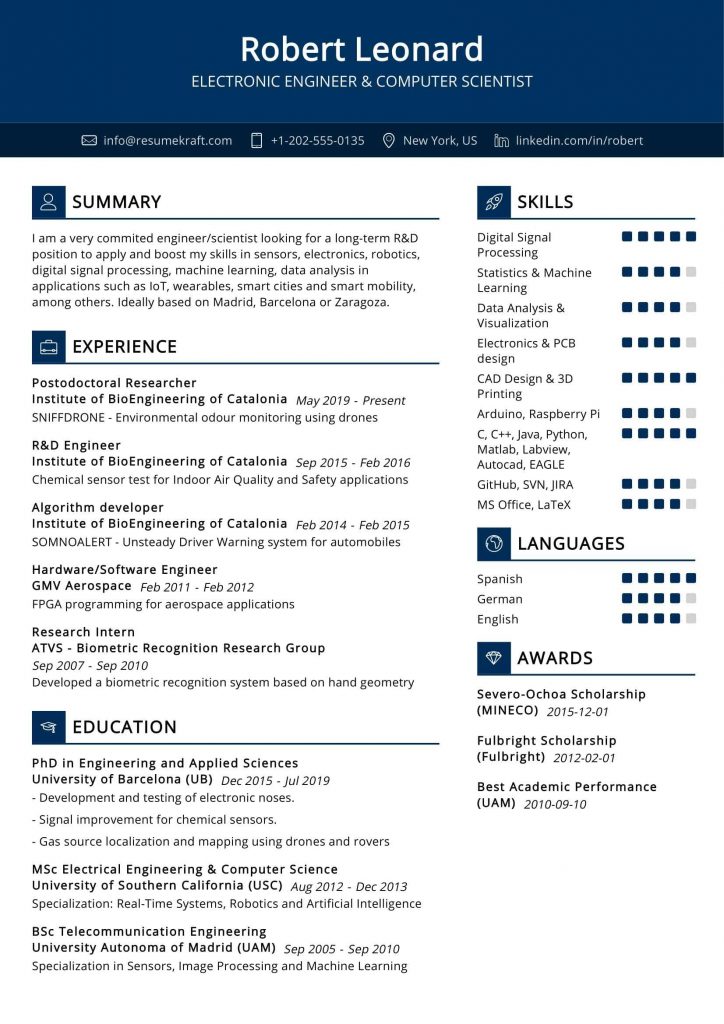
Frequently Asked Questions
The following are some tips to improve your CV:
1. Use a professional CV template
2. Check your grammar and spelling
3. Use simple, clear language
4. Tailor your CV to the specific job you are applying for
5. Highlight your relevant skills and experience
6. Use key words from the job description
7. Avoid using clichés
8. Keep your CV to two pages
Some common mistakes people make on their CVs include:
1. Using a generic CV template
2. Not tailoring their CV to the specific job they are applying for
3. Including irrelevant information
4. Making grammar and spelling errors
5. Using clichés
6. Making their CV too long
Your CV should be clear and concise, and should be formatted in an easy to read way. Use bullet points and clear headings to break up sections, and use clear, simple language throughout.
Your CV should include your name, contact details, education, skills, and experience. Tailor the information you include to the specific job you are applying for, and highlight your most relevant skills and experience.
Your CV should be two pages or less.
A good CV is one that is tailored to the specific job you are applying for, and highlights your most relevant skills and experience. It is clear and concise, and easy to read.
There are a few things you can do to make your CV stand out:
1. Use a professional CV template
2. Tailor your CV to the specific job you are applying for
3. Highlight your relevant skills and experience
4. Use key words from the job description
5. Avoid using clichés
6. Keep your CV to two pages
When making a CV for a specific job, you should tailor the information you include to match the job requirements. Highlight your relevant skills and experience, and use key words from the job description.
There are a few things you can do to make your CV more professional:
1. Use a professional CV template
2. Check your grammar and spelling
3. Use simple, clear language
4. Tailor your CV to the specific job you are applying for
5. Highlight your relevant skills and experience
6. Use key words from the job description
7. Avoid using clichés
8. Keep your CV to two pages
We hope you like the above Good cv examples for your next job interview.
Recommended Reading:

